Life Saves the Planet Blog:
Ecorestoration Reviving and rehabilitating degraded ecosystems to restore their ecological functions, enhance biodiversity, and increase their capacity to sequester carbon, aiding in climate change mitigation and adaptation efforts.
Reviving and rehabilitating degraded ecosystems to restore their ecological functions, enhance biodiversity, and increase their capacity to sequester carbon, aiding in climate change mitigation and adaptation efforts.
Wildfires Fact & Fiction
Wildfires Fact & Fiction:How to Prevent Wildfires by Rehydrating Our Land;How to Protect Homes and People Without Harming Our Forests May 1, 8, 15 & 22 Thursdays — 12:00 noon & 7:00 pm ET Featuring 2 Expert Guest Speakers: George Wuerthner — May 8 – 7:00 pm ET Chad Hanson, PhD — May 15 – 7:00…
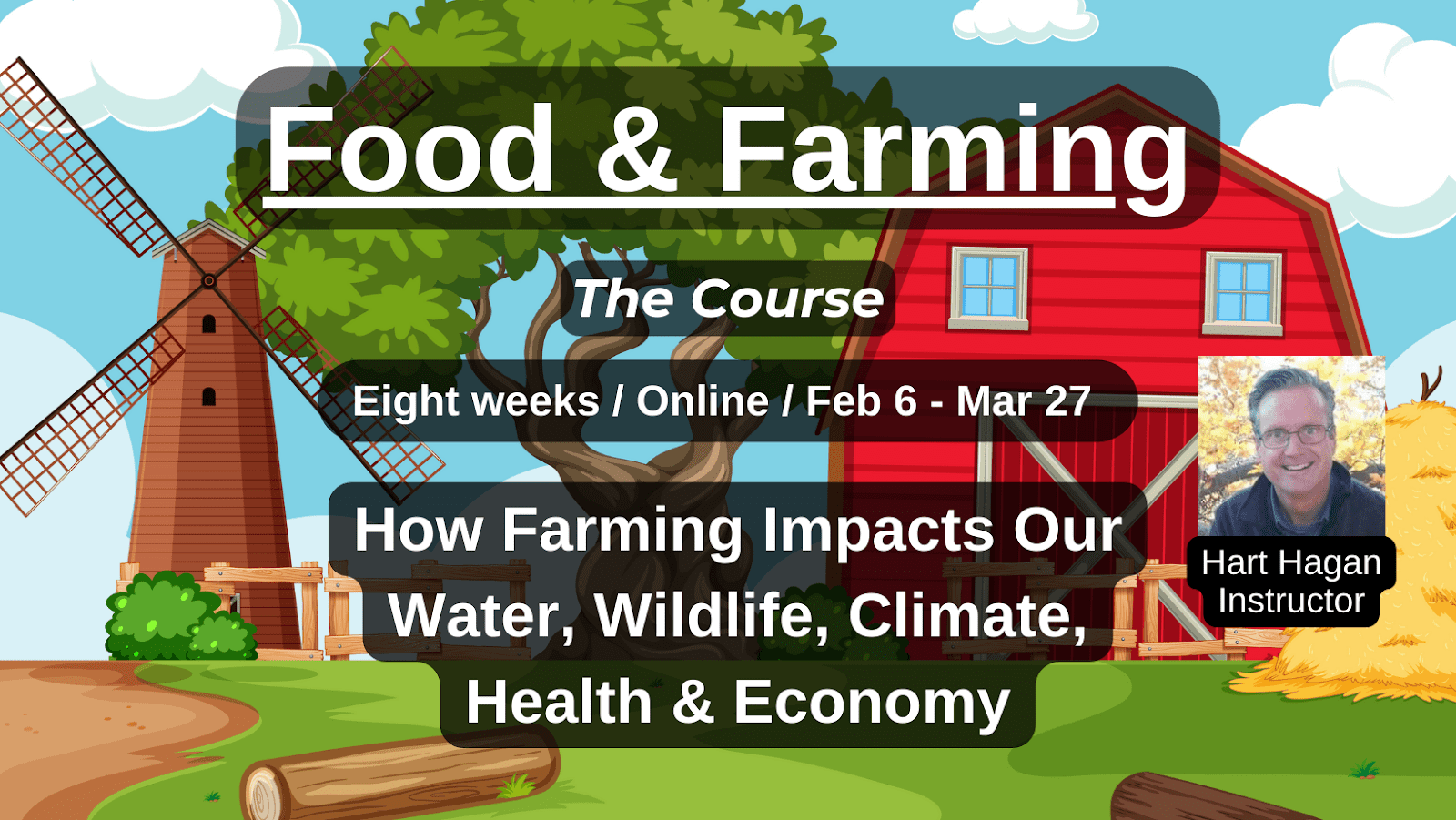
Food & Farming
Food & Farming:How Farming Impacts Our Water, Wildlife, Climate, Health & EconomyFebruary 6 – March 27, 2025 12 noon -or- 7 pm ET Plus, see our Free Introductory Class below! Free Introductory Class: 10 Powerful Ways You Can Change Our Food SystemTuesday, February 4 12 noon -or- 7 pm ET Free Introductory Class – Tuesday,…
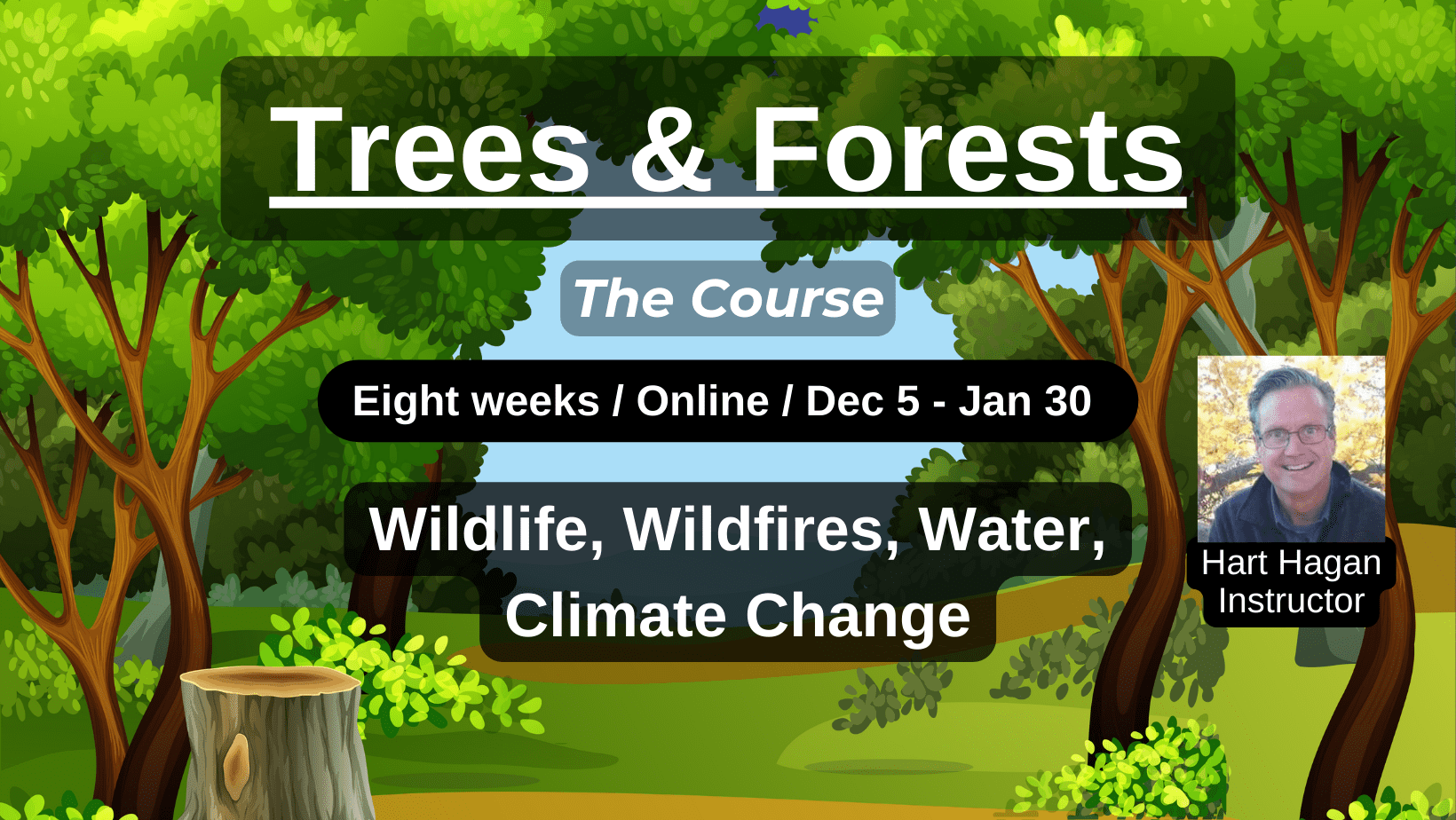
Trees & Forests — Wildlife, Wildfires, Water Cycles & Climate Change — starts December 5
Forests are more important than most of us realize. Forests make rain, cool the temperature, and send moisture to regions around the world. In many cases, forests have become monoculture “tree plantations” for the timber industry, lacking biodiversity and moisture. In a biodiverse forest, the soil soaks up water like a sponge, preventing wildfires, drought,…

Trees & Forests
Trees & ForestsWildlife, Wildlife, Water and Climate Change December 5, 2024 – January 30, 2025 Thursdays: 12 noon -or- 7 pm ET Course Description Trees & Forests is an eight week online course (Dec 5 – Jan 30) that explores the many benefits and wonders of our trees and forests, as well as the threats…

Thaw and Freeze: The ecological, geological, and human stakes of a warming Arctic
WATCH THE RECORDING A rapidly changing Arctic is reshaping everything. Polar bears navigate shrinking expanses of sea ice, thawing permafrost threatens coastal villages, destabilizes infrastructure, and exhales methane, and warming temperatures push more species northward into a greener arctic. These transformations are profound, and their impacts can extend far beyond the region’s ecologies that depend…
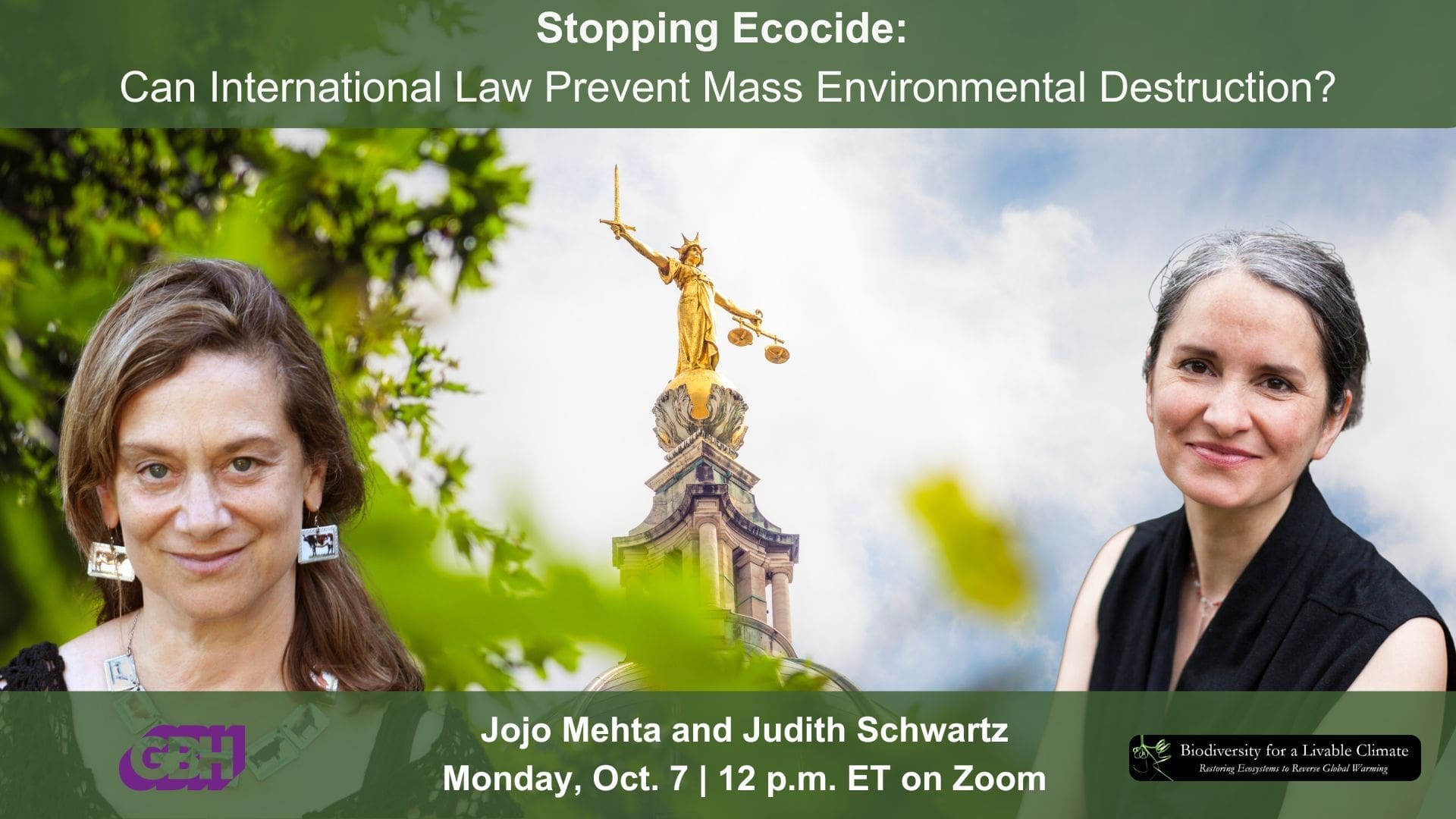
Stopping Ecocide: Can International Law Prevent Mass Environmental Destruction?
WATCH THE RECORDING Diverse ecosystems represent the greatest climate action technology at our disposal. But what recourse do we have when nature itself is under attack from the world’s biggest political and economic powers? The movement to codify ecocide, that is, the intentional (or negligent) mass destruction of an ecosystem, as an international crime is…
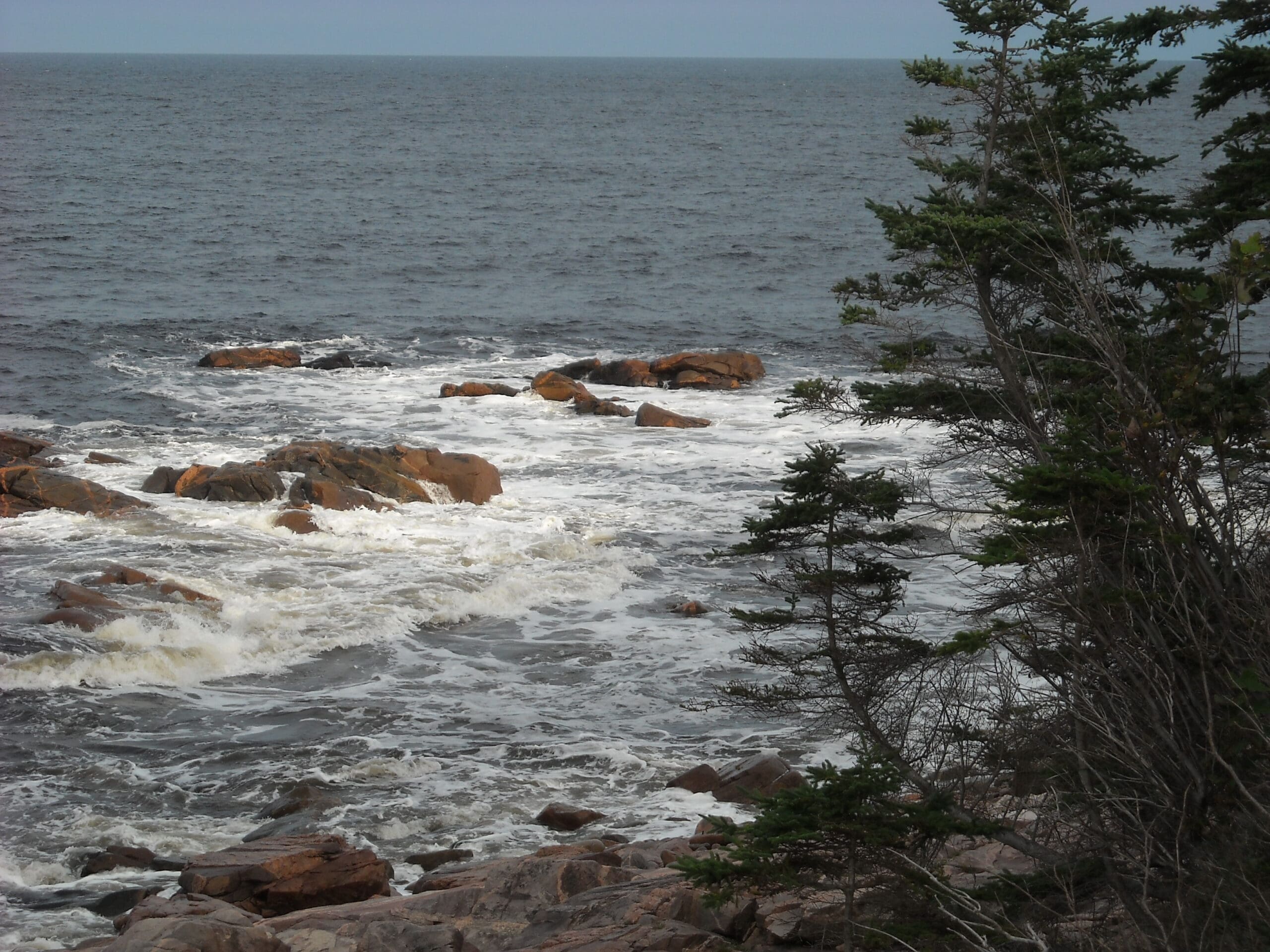
Biodiversity 11: Warming Oceans, Moving Shorelines & Sea Level Rise – with Jim Laurie
What can be done to break the ocean’s fever and cool the planet? With the oceans warming rapidly causing larger storms and hurricanes, forecasts for sea level rise ranging from 2 feet to 20 feet by 2100, and polar regions warming three times faster than the rest of the world, humanity may be facing the…

2024 Midwest Beaver Summit
Bio4Climate is excited to co-host the 2024 Midwest Beaver Summit alongside many outstanding environmental nonprofits, land trusts, restoration practitioners, and other organizations dedicated to conservation, implementing coexistence strategies, and cultivating awareness of the importance of beavers as keystone species in our ecosystems. WATCH THE RECORDING Full Agenda: This summit is organized by Midwest Beaver Advocacy…
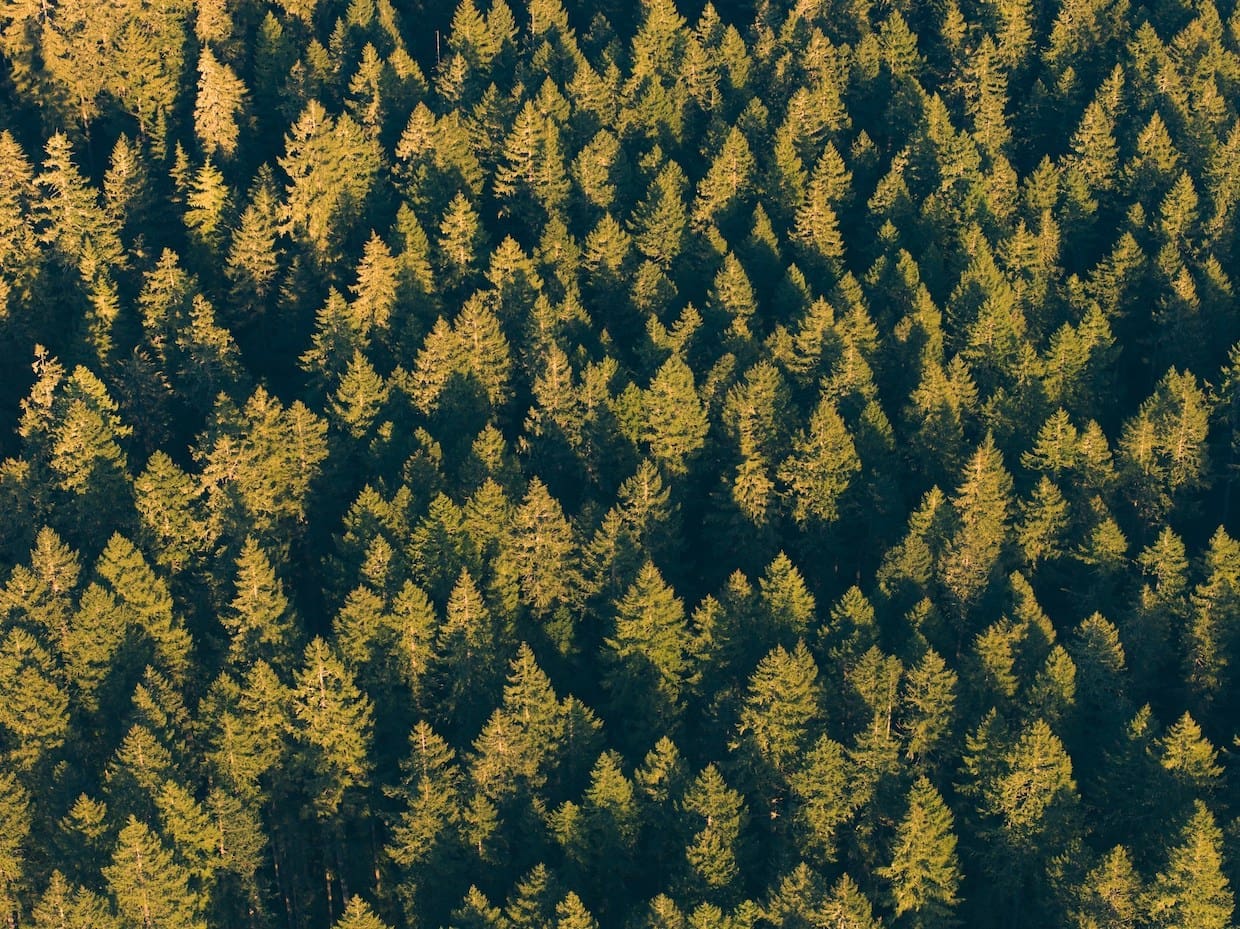
Just released: “Cooling Climate Chaos: A Proposal to Cool the Planet within Twenty Years.”
This newly published book by Peter Bunyard and Rob de Laet approaches the climate crisis and its solutions from a completely different angle. “To address the climate crisis, now demonstrably causing havoc with life-killing extreme events,” the authors write, “we must not only transform our economic and societal models towards sustainability and resilience, we must…

Kick off your Summer 2024 Reading List
How can we find cool insights as we dive into a summer of heatwaves and weather extremes? It hasn’t always been this way. Many of us remember carefree summers with morning dew on the grass or a breeze by the beach or river. Everyone knows it’s cooler by the water! Nations and communities have favorite…
![[MA Local] Emerald Tutu Floating Wetlands Tour [MA Local] Emerald Tutu Floating Wetlands Tour](https://b2408965.smushcdn.com/2408965/wp-content/uploads/emerald-tutu.jpg?lossy=2&strip=1&webp=1)
[MA Local] Emerald Tutu Floating Wetlands Tour
July 23, 2024, 10am to noon. Join local students of Jim Laurie’s Symbiosis Team to get an up front and personal view of the floating wetlands designed for Boston Harbor. This is the innovative project of modular floatingwetlands in East Boston that was shown in the documentary, Inundation District, on sea level rise in Boston.…
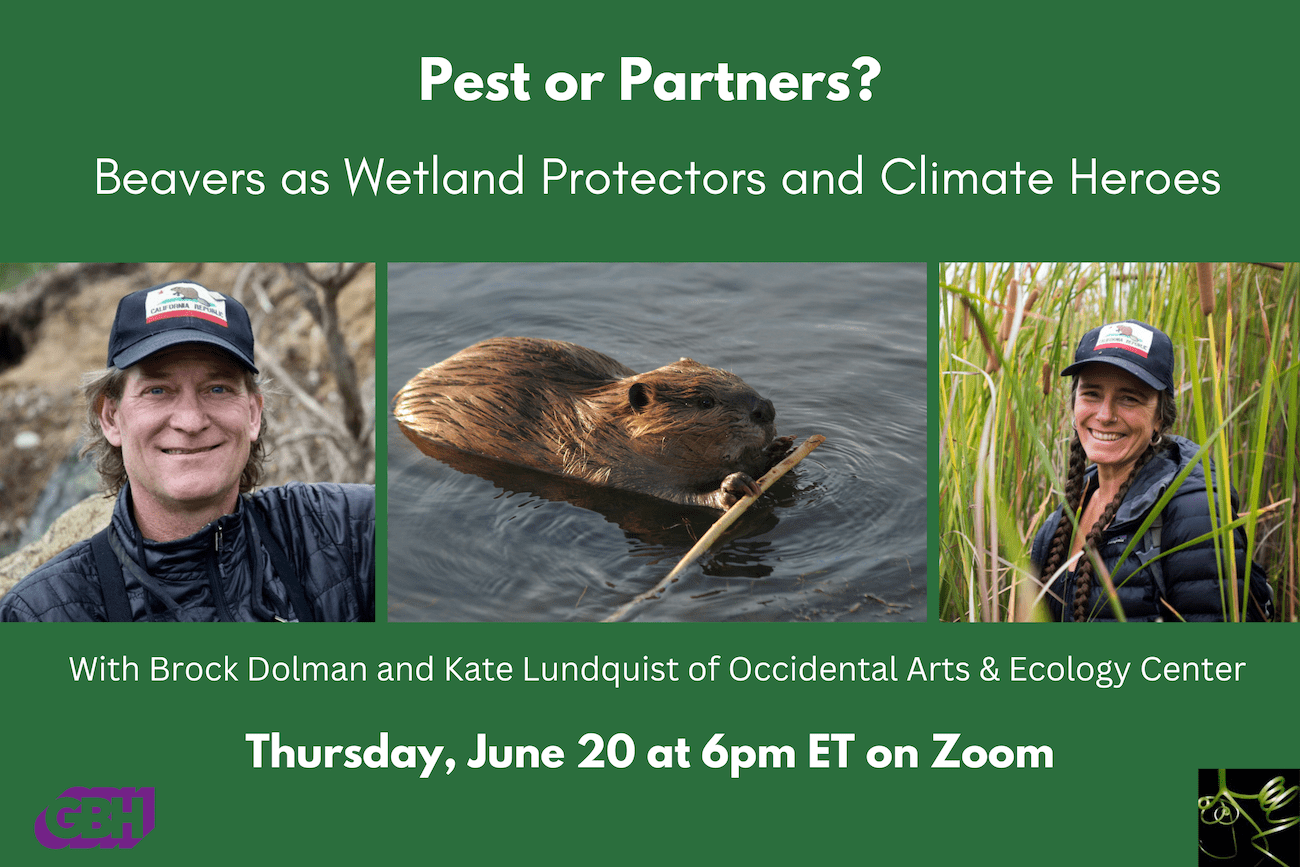
Beavers as Wetland Protectors and Climate Heroes – Thursday June 20
How can one furry critter can help us restore wetlands, protect biodiversity and mitigate both floods and fires. Brock Dolman and Kate Lundquist will shared their insights on beavers’ beneficial role as ecosystem engineers, and lessons from their successful support of a recent state-led Beaver Restoration Program in California. Watch the recorded event. As WATER…
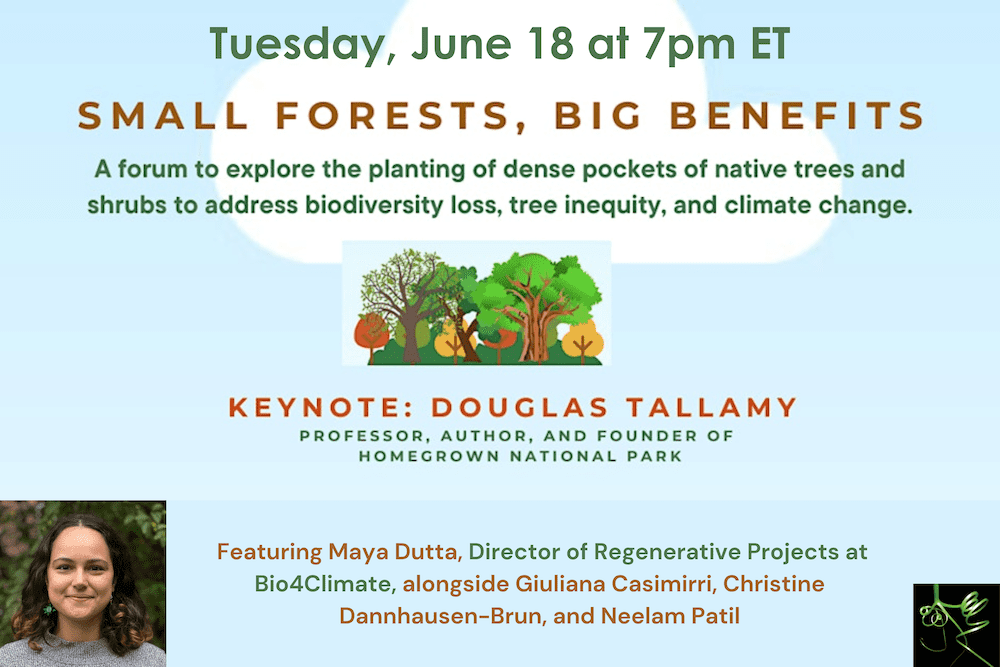
Small Forests, Big Benefits – Tuesday June 18
On Tuesday, June 18 at 7pm ET, we participated in a comprehensive forum on Miyawaki Forest adoption across the US. Watch the recording here! In this online event, Bio4Climate’s Director of Regenerative Projects, Maya Dutta, joined keynote speaker Douglas Tallamy and three other national leaders to explore how mini-forests of native trees and shrubs can…
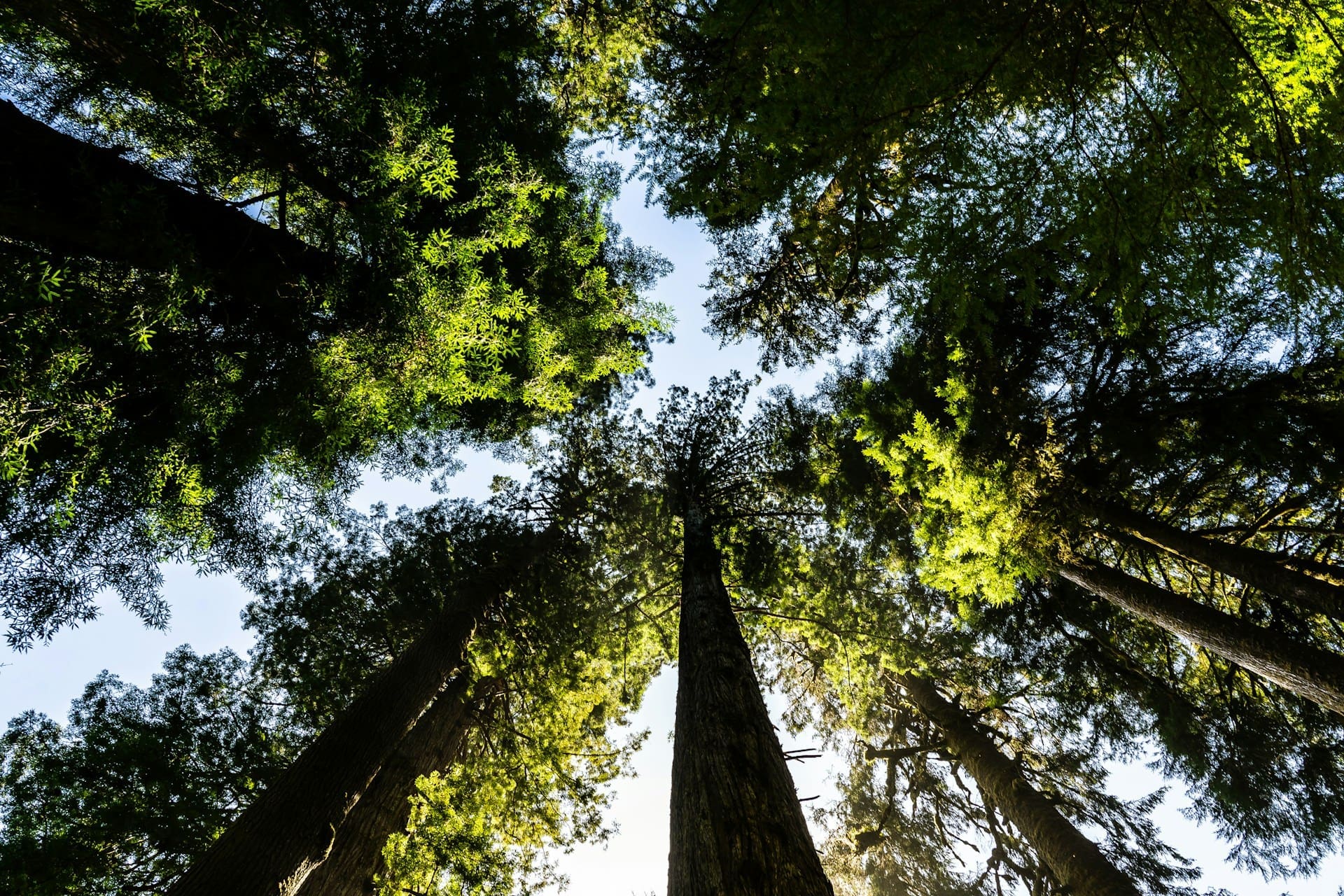
Signing on to Protect Forests
We, the undersigned organizations, are writing with the hopes of establishing a dialogue regarding the October 17, 2023 joint comment letter sent to Congress by the Outdoor Industry Association, Outdoor Alliance, and The Conservation Alliance concerning the Farm Bill.
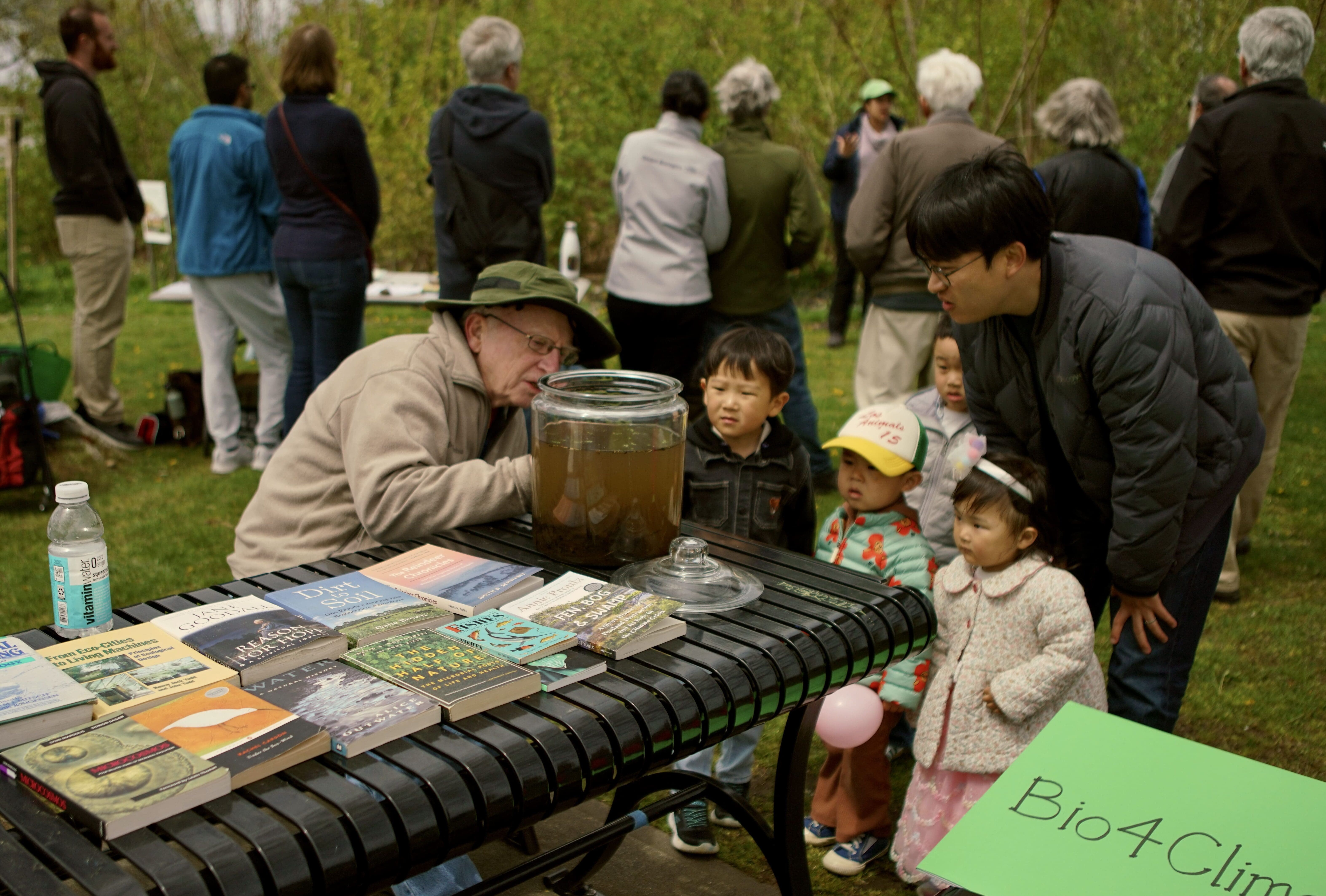
Biodiversity Day: A Community Celebration
By Paul Barringer and Jean Devine of Native Plant Community Gardeners Our first Biodiversity Day festival was a success! On Saturday, May 4th, over 120 visitors came to Danehy Park, Cambridge, to join birding tours, Miyawaki Forest tours, learn about pollinator gardens, native plants, and ecosystem restoration from ten local environmental organizations who joined us…
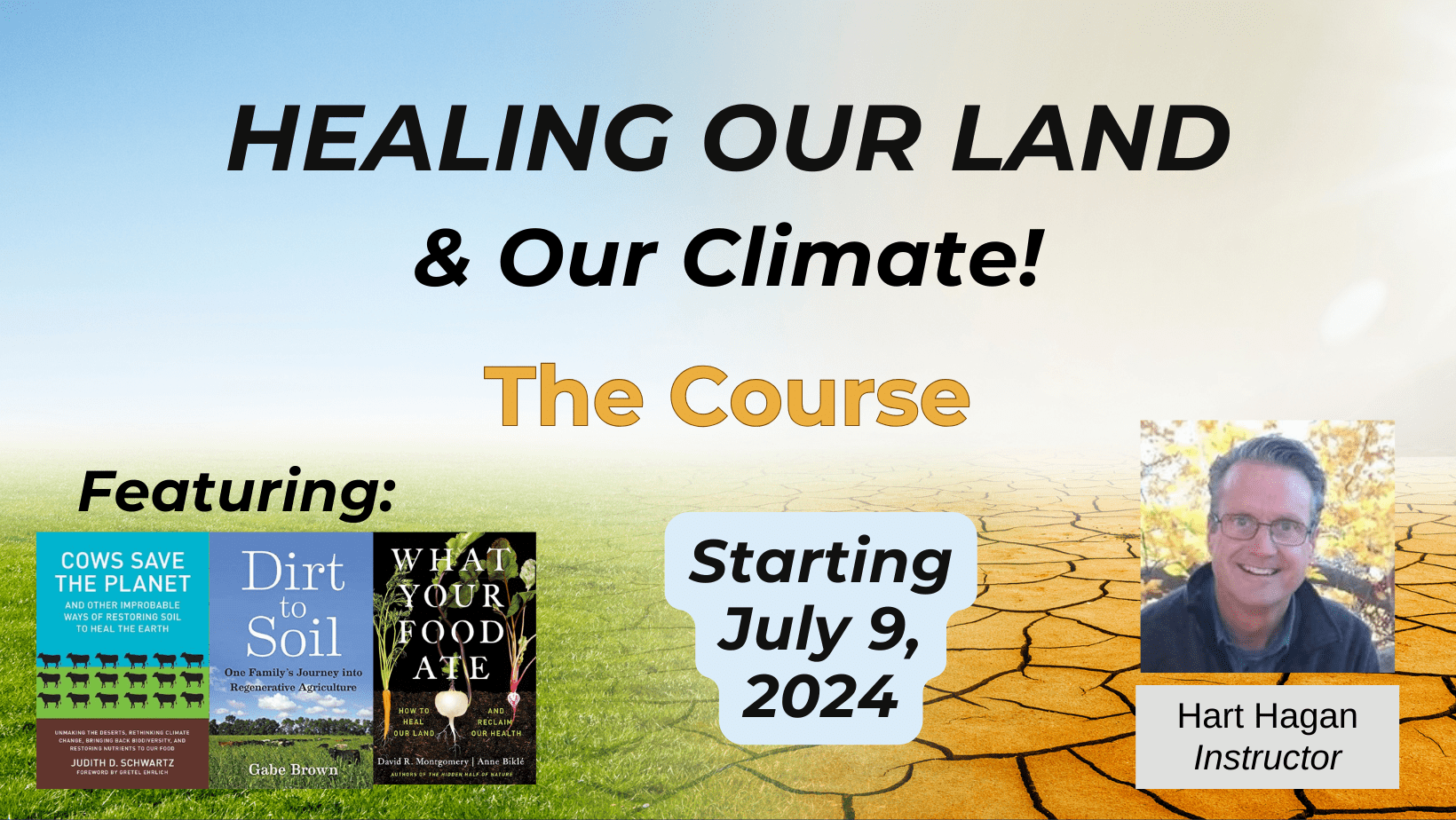
Healing Our Land & Our Climate!
Healing Our Land & Our Climate! July 9 – September 24, 2024 Tuesdays: 12 noon -or- 7 pm ET What if we could deal with the causes of climate change and at the same time deal with its effects? What if we could prevent flooding, drought and wildfires and at the same time cool our…

Cool Forests for a Hot World
We affirm the need to restore the five billion hectares of degraded land worldwide but we have also found a way to bring the power of eco restoration home. Home to our own communities; Home to those most in need of a healing shot of nature; By planting tiny forests in urban areas, using the…
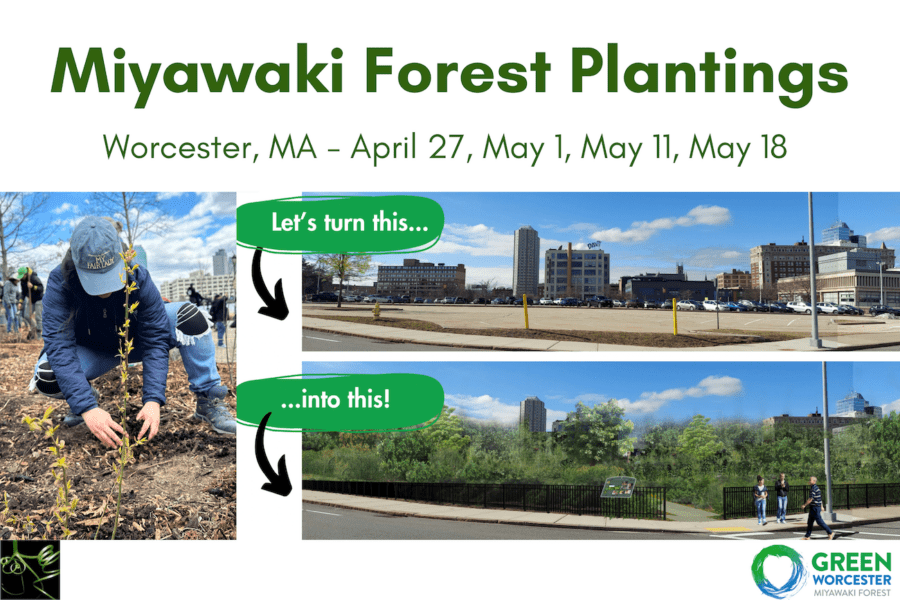
Miyawaki Forest Planting – Extra Installation Date June 12
This Spring, we are planting the first two Miyawaki Forests in Worcester, MA. These dense, biodiverse, native pocket forests will bring cooling, beauty, and resilience to the urban landscape. Join us for one additional planting day at Plumley Village Apartments on Wednesday, June 12 at 3pm. Come ready to get your hands in the soil…
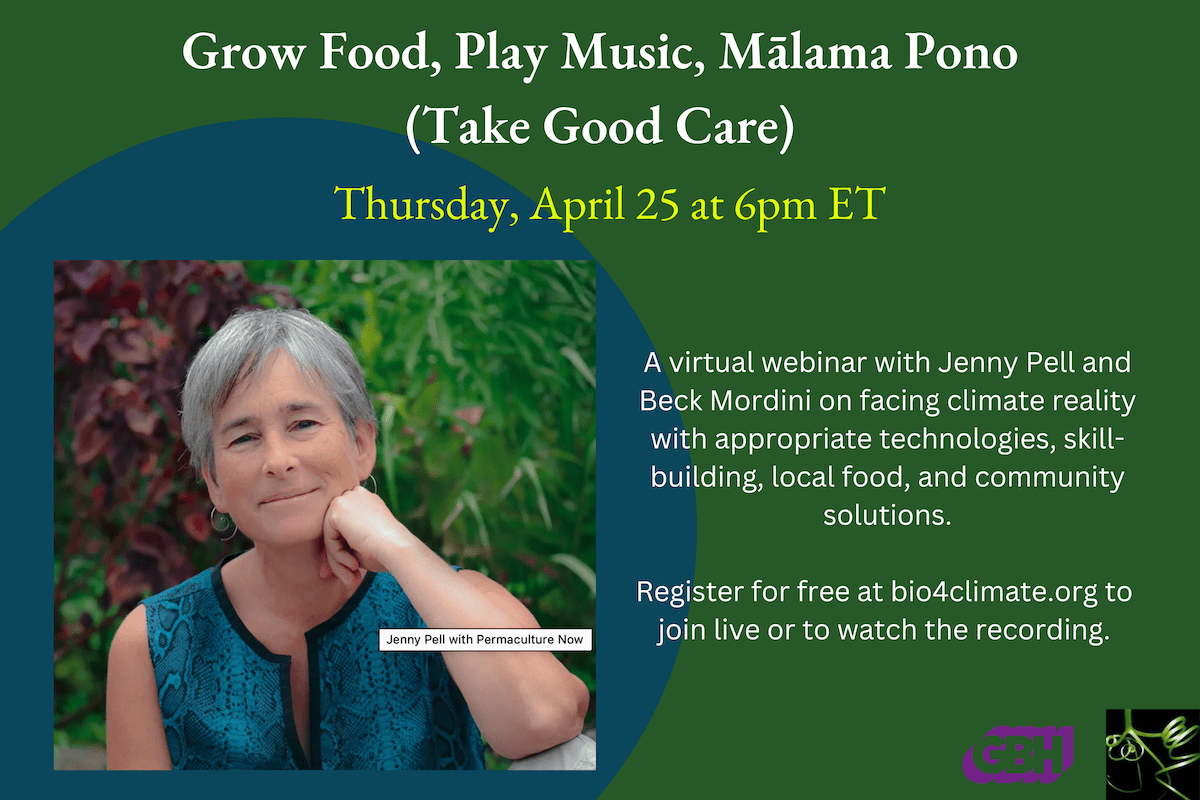
Grow Food, Play Music, Mālama Pono (Take Good Care) – Thursday, April 25, 6pm ET
On Thursday, April 25 at 6pm ET, Beck Mordini and Jenny Pell held a lively conversation about facing our pretty scary future with integrity, hope, plenty of know-how, and a great sense of humor. We dove into climate reality, appropriate technologies, skill-building, local food, and neighborhood solutions that will inspire you to jump into your own…
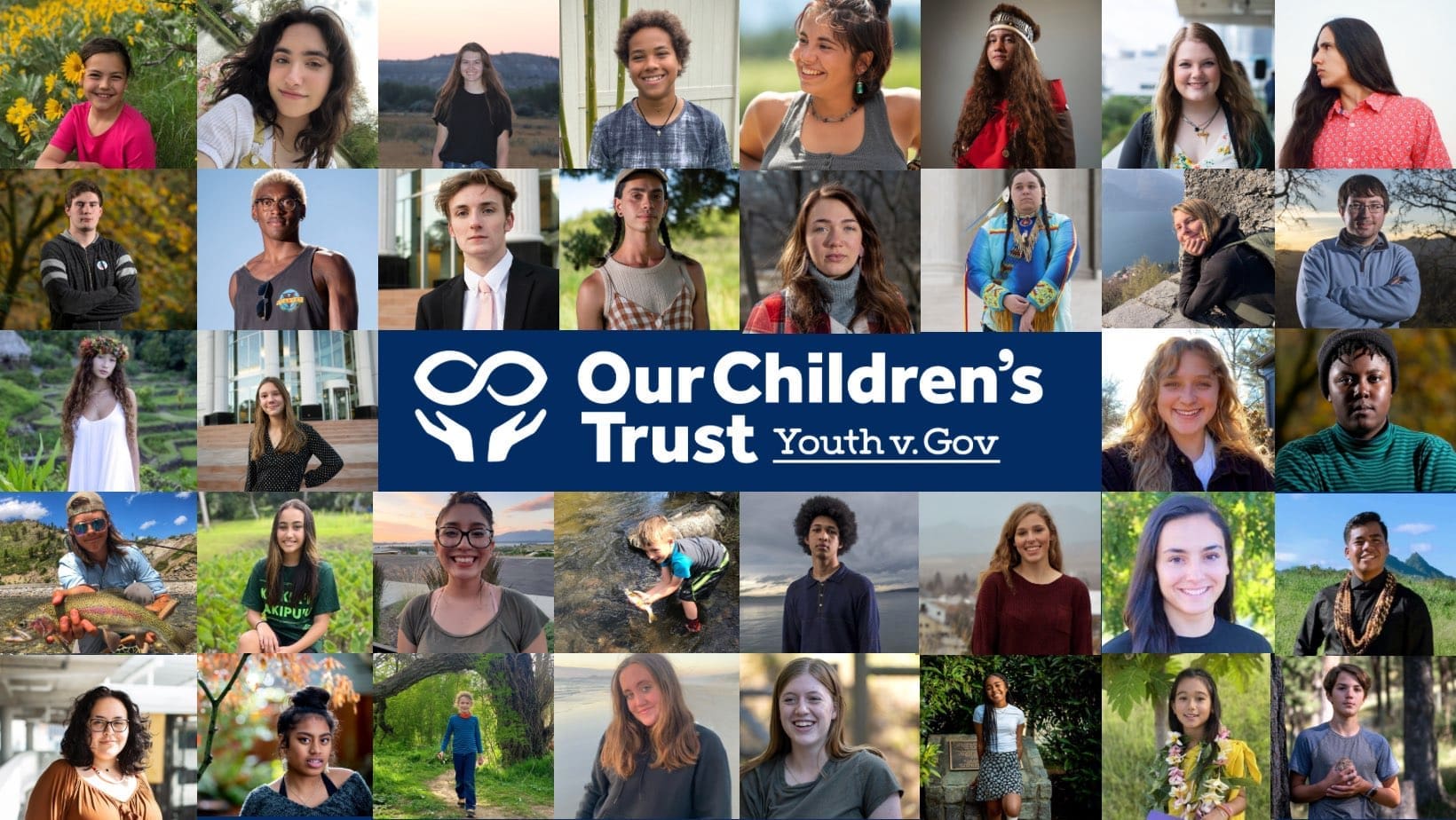
Youth-Powered Climate Justice with Our Children’s Trust – Thursday, April 25 – 12 noon
On Thursday, April 25 at 12:00 noon ET on Zoom, Mat dos Santos and Laura Gehrke of Our Children’s Trust will explain how 16 youth plaintiffs successfully sued the State of Montana to protect their right to a clean and healthful environment, and how youth in six other cases in the U.S. and Canada are…
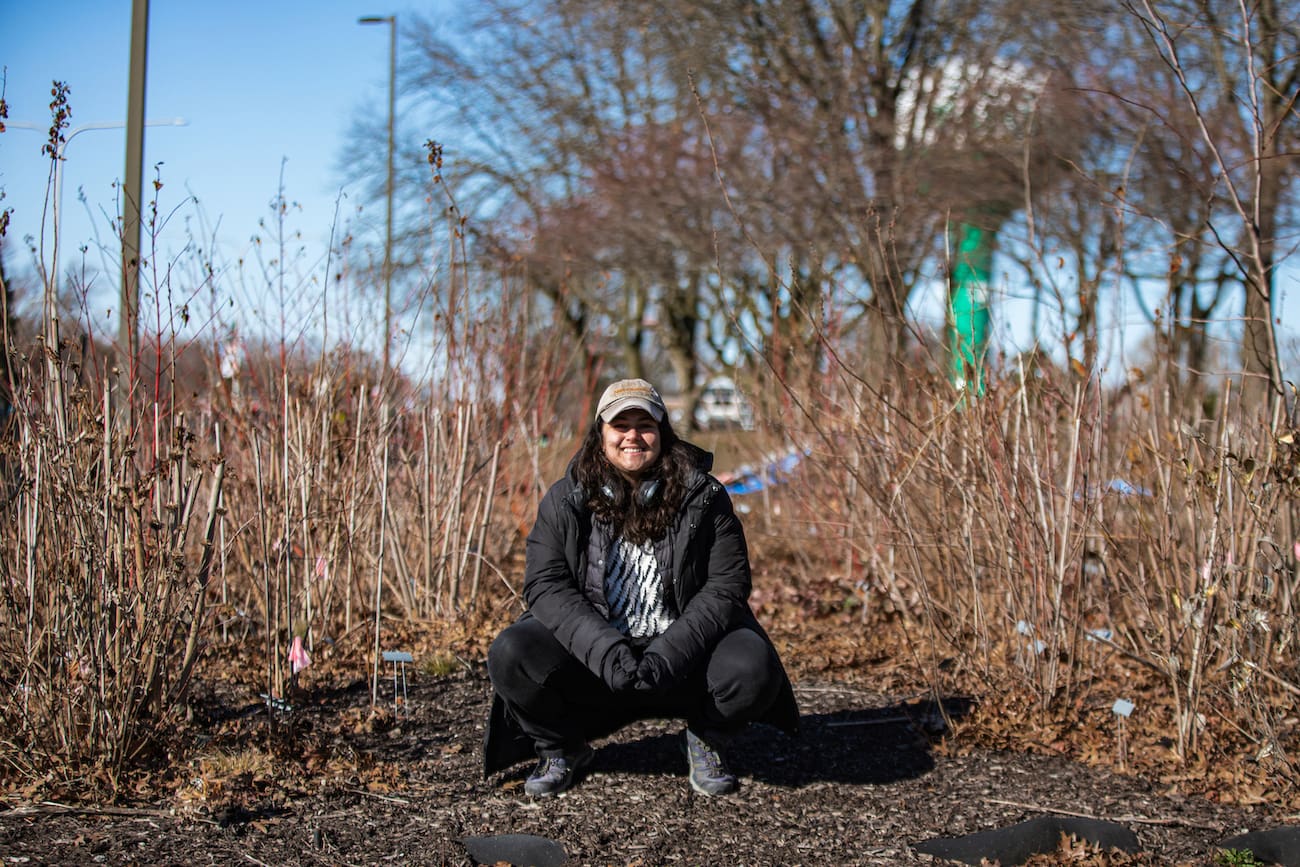
Rewilding the Windy City
I’ve loved Chicago from the first day I set foot there, and I’ve missed the Windy City since I left after college in 2018. When I had a chance to visit two weeks ago, I made it a point to try to understand Chicago’s ecosystems better, and check in on the many ways communities across…
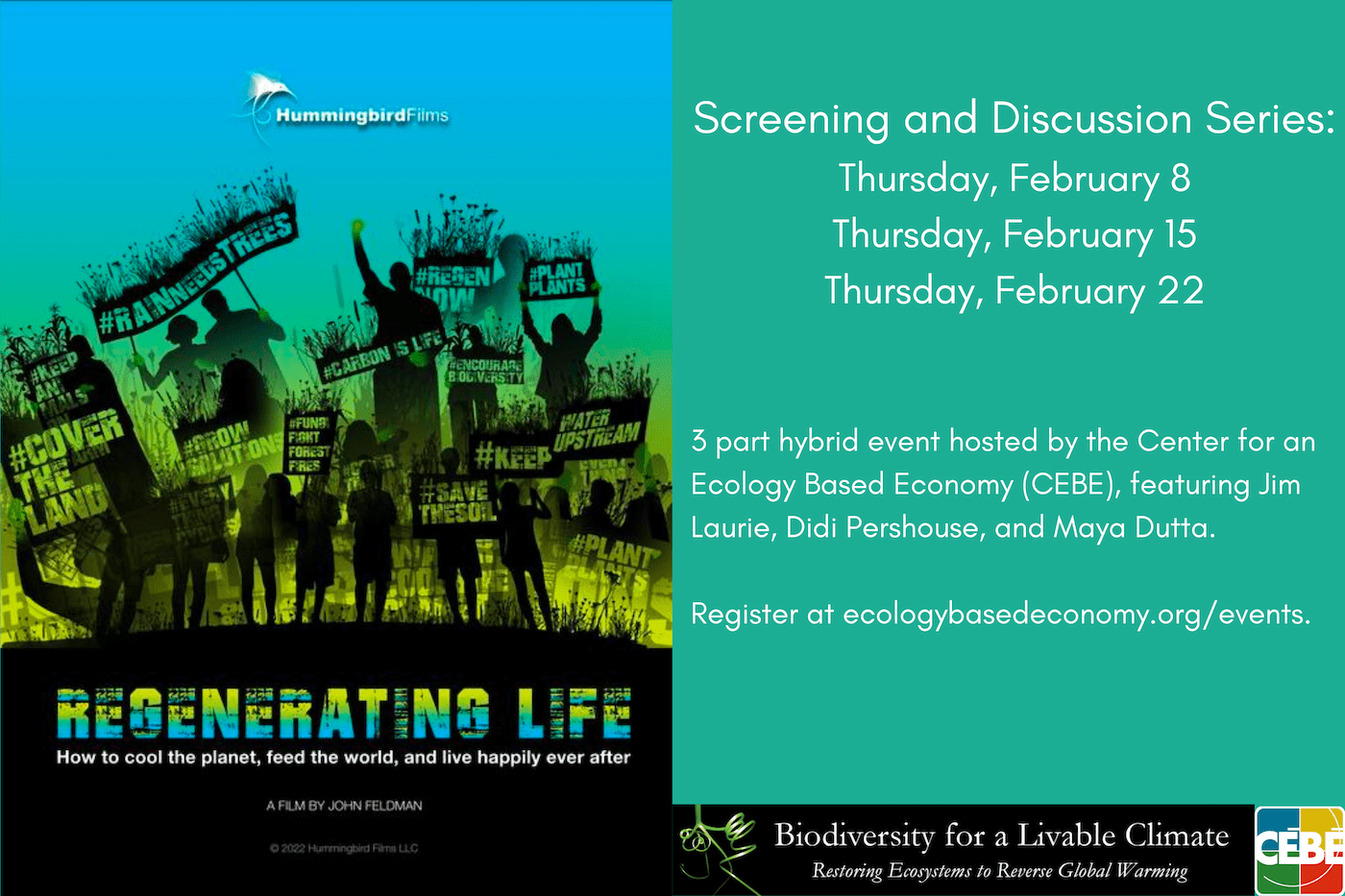
Regenerating Life Screening and Discussion Series – February 8, 15, and 22
Join soil scientist Didi Pershouse and Bio4Climate members Jim Laurie and Maya Dutta this February for a learning and discussion series on John Feldman’s Regenerating Life. The Center for an Ecology Based Economy (CEBE) is hosting a hybrid series to screen the documentary in three parts and discuss the science and solutions within. Register now…
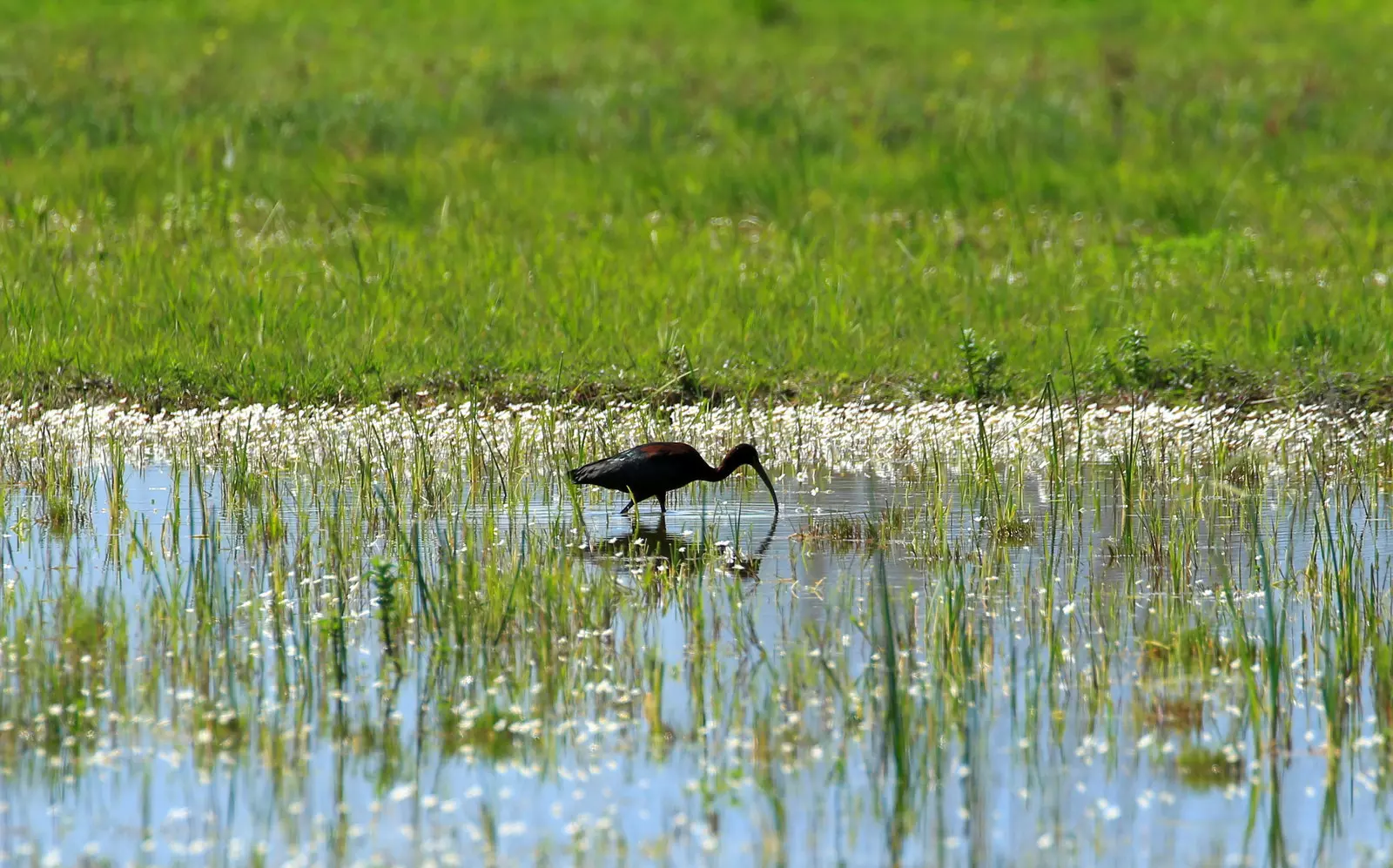
Biodiversity Deep Dive: Beavers, Wetlands, and Living Shorelines
Starting Wednesday, February 21, Jim Laurie begins his 12 week Biodiversity Deep Dive course. Join us for an exploration of wetlands, shorelines, the water cycle, and the solutions powered by a systems approach to climate. This course meets every Wednesday, starting February 21 and running through May 8, 2024. Sessions will be held from 12…
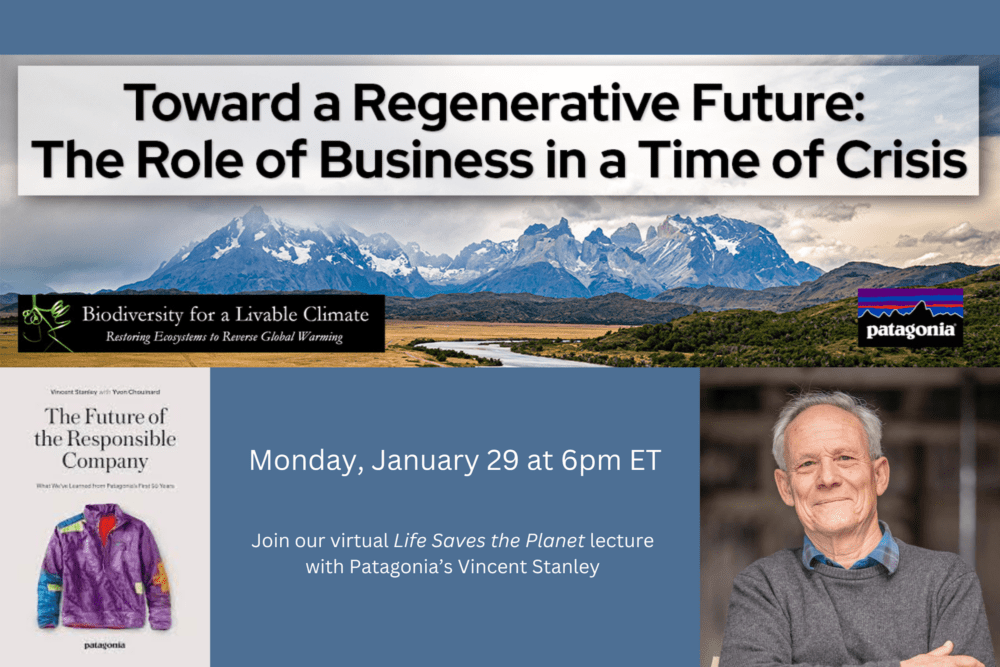
Toward a Regenerative Future – Monday, January 29 at 6pm ET
On Monday, January 29, Vincent Stanley of Patagonia joined our Life Saves the Planet lecture series to discuss the role of business in pivoting to regenerative systems. It is easy to vilify globalization and corporate America, but what would happen if the vast resources of the world economy turned towards eco-restoration, fair trade and uplifting…
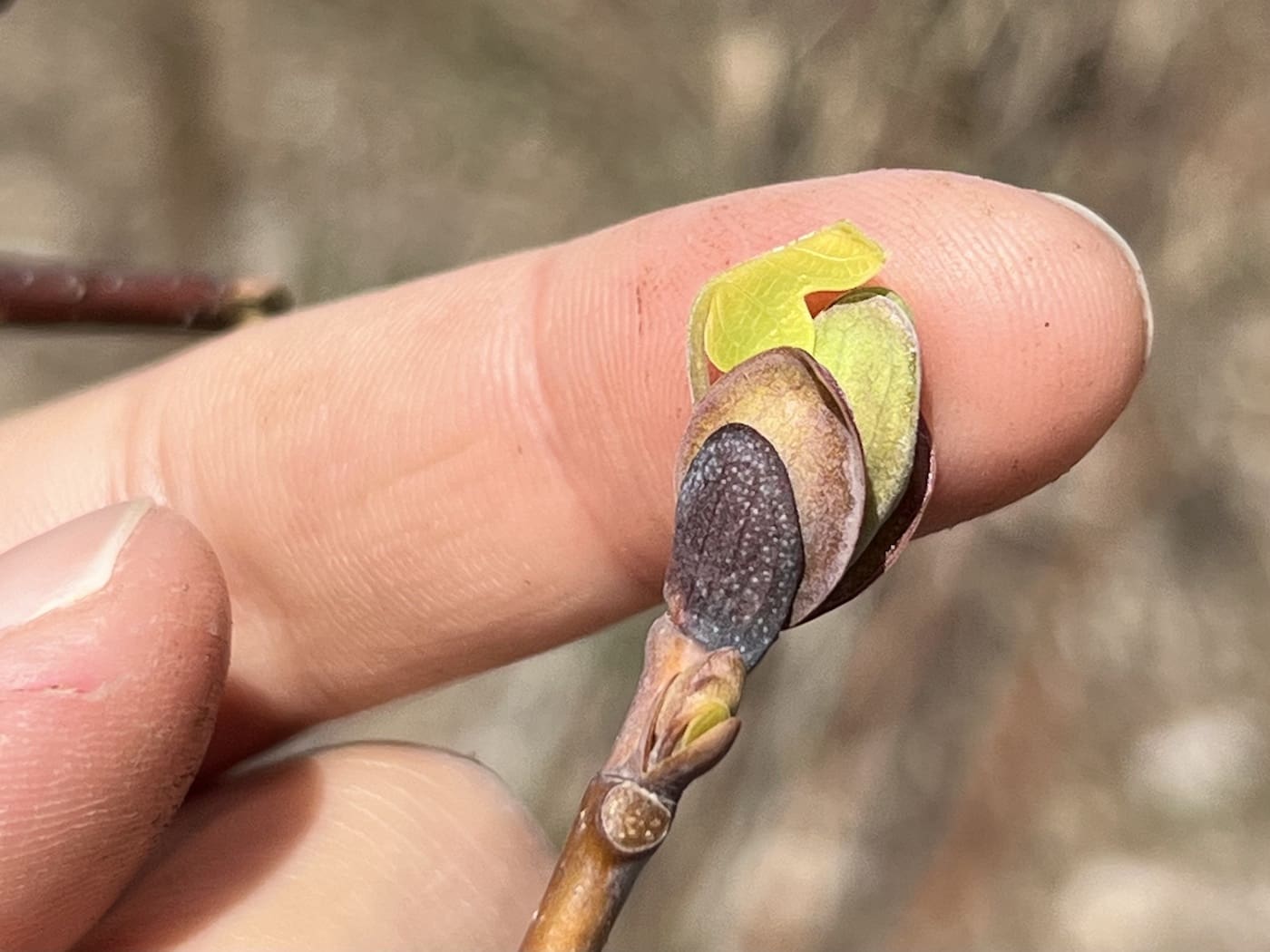
2023 in the Forest
As the year rounds out, it is time to reflect on the changes and growth we’ve seen in 2023. Nothing gives me quite as much pride, amazement, and faith in the power of change than our young Miyawaki forests. I was honored to share our work with the public in this short feature from the…

Halley’s Comet and Scenario 300
Halley’s Comet last hurtled around the Sun in 1986 and is expected to return in July of 2061. What will the Earth be like when the Comet returns? What kind of world do we want to greet it?
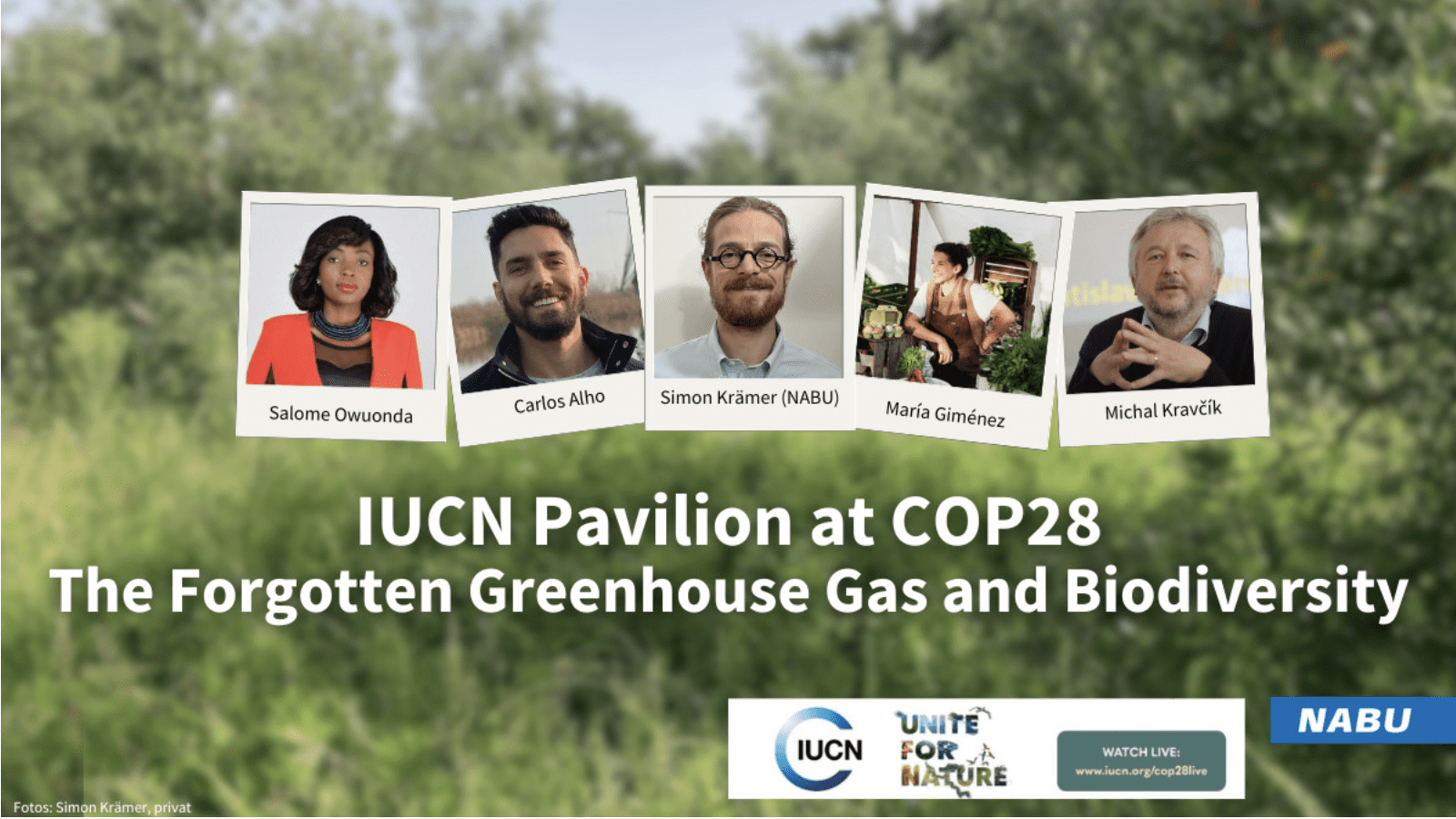
Water Holistic @ COP28 in Dubai
While most people are focused on the irony of COP28 being hosted by the fossil fuel industry, we will be focusing on the work being done on biodiversity, eco-restoration and water cycles.
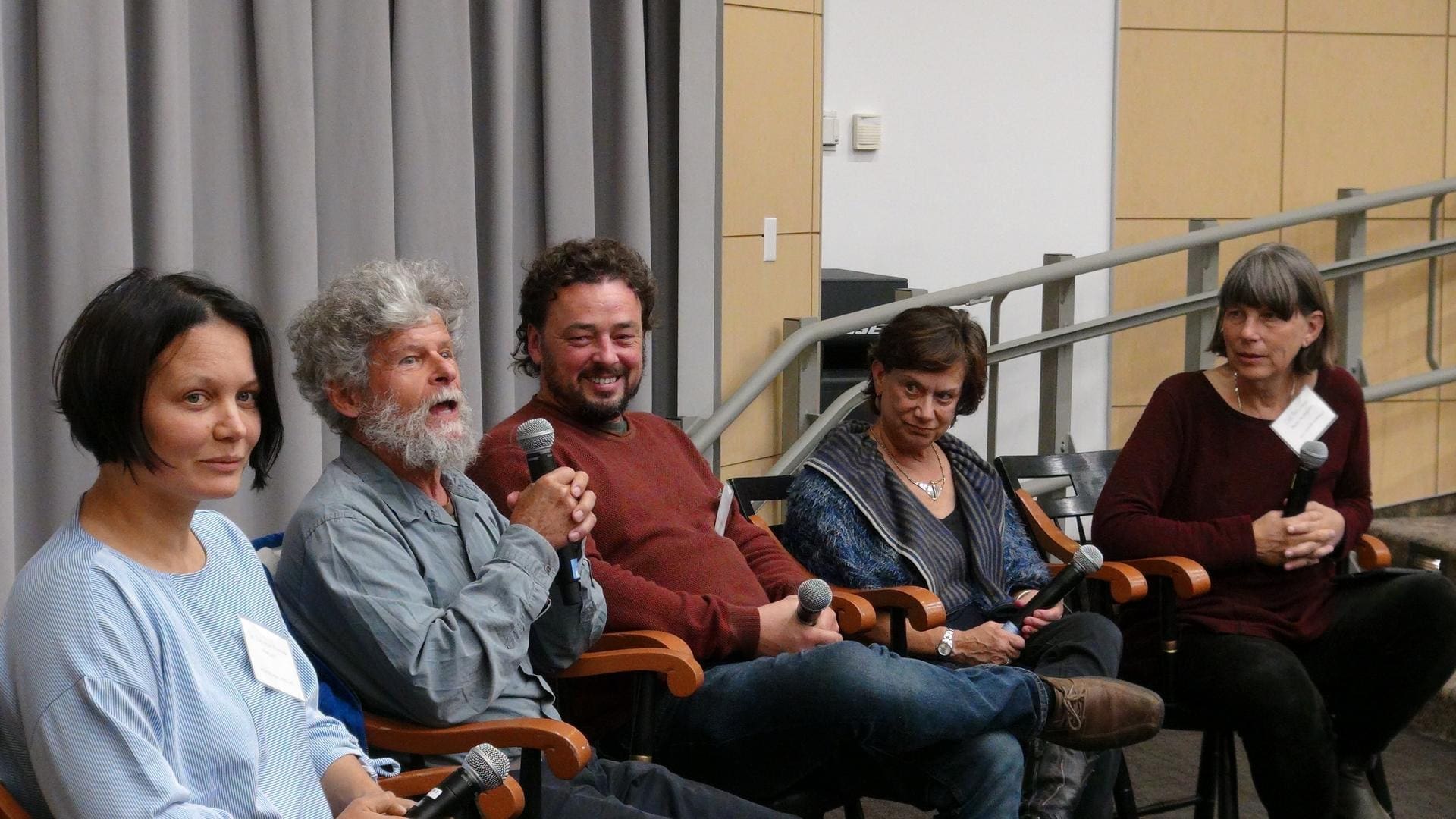
Regenerating Life Film Premiere – Panel Discussion
We are excited to share with you the panel discussion from the Boston Premiere of the film Regenerating Life! It was such a full day with three parts to the film, interesting exhibitors, and reconnecting with friends, that it was difficult to take it all in at once. You can share some of that excitement from…

Are We Doing Solar Right?
On Thursday, November 9 at 6 pm ET, we welcomed Michelle Manion of Mass Audubon to our Life Saves the Planet lecture series to discuss the negative impacts of solar installations on forest land and the viability of alternatives. Check out the recording now.
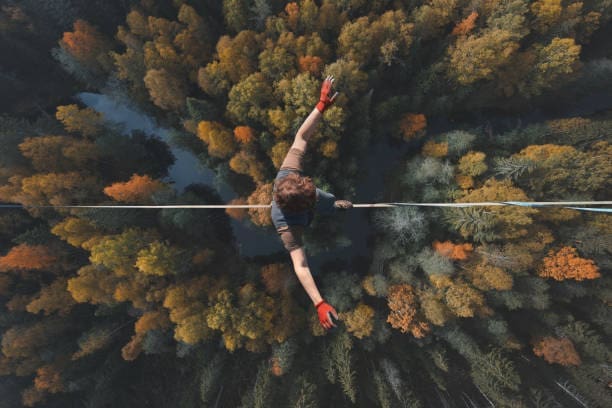
Aligning natural and human laws for global wellbeing: Legislative Action
Dr. Makarieva explains why protecting existing forests is one of the most important things we can do to stabilize the climate. Pending legislation in MA (USA) serves as a model for policy protections needed around the world. Learn more about taking action here, and find out more at Save Mass Forests. Our climate system is incredibly…
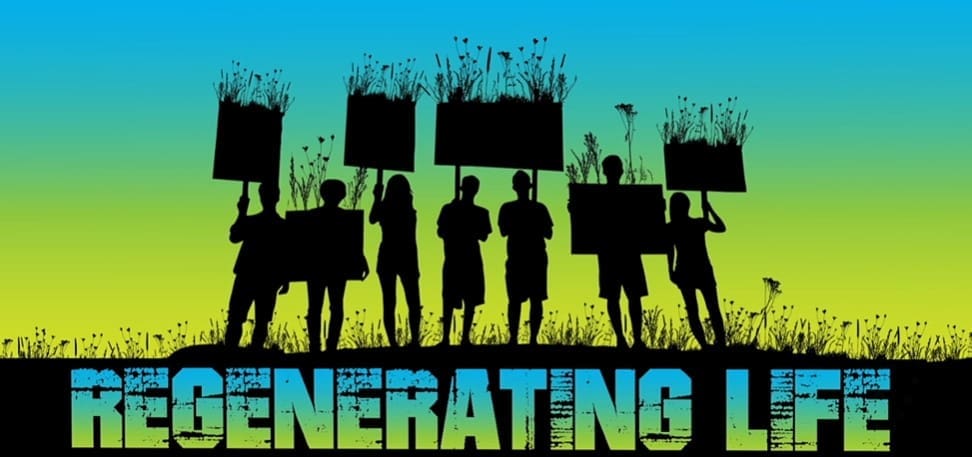
What a Great Day at Tufts: Regenerating Life Together
Our Boston Premiere of Regenerating Life at Tufts University was a tremendous success! It was exciting to see about 100 people come together to experience how John Feldman wove the many threads of the importance of nature to climate stability together in film. Conversation was lively during the lunch break, as people talked with exhibitors…
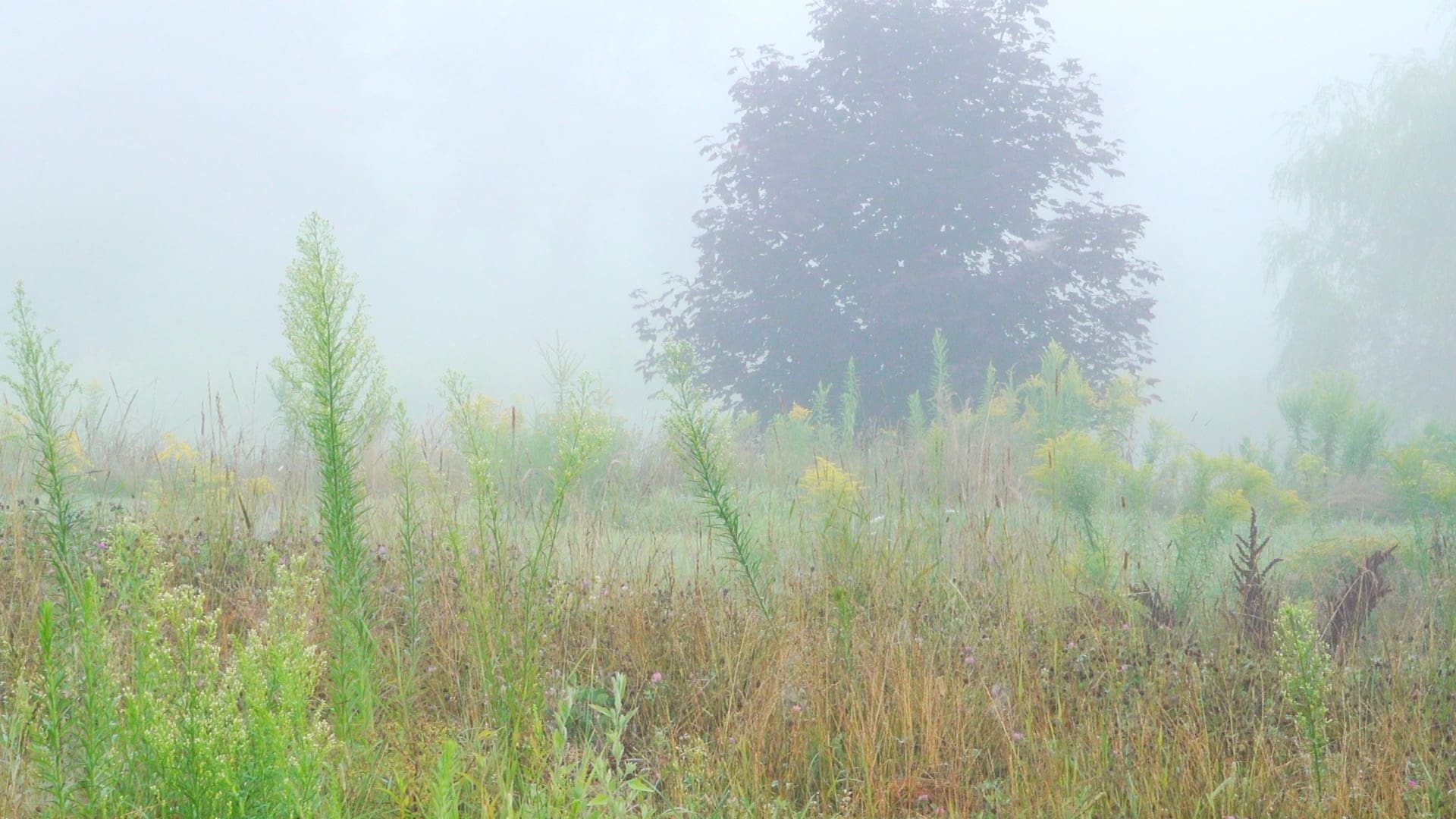
A Film that Affirms the Power of Life to Heal Our Planet
To a climate conversation long dominated by computer models and technological jargon, Regenerating Life: How to Cool the Planet, Feed the World and Live Happily Ever After brings some badly needed rain, along with dung beetles, sweating trees, fungal mycelia, cloud-making forests, beavers, worms, soil microbes, cow patties and whales. As more and more people…

Regenerating Life Film Premiere
On Saturday, October 14 from 12:30 to 4:30pm we hosted the Boston premiere of John Feldman’s remarkable documentary, Regenerating Life. Held at Tufts University, this symposium featured a screening of the film, a panel discussion involving the director and experts from the film, and local organizations sharing ways for people to get involved in their…
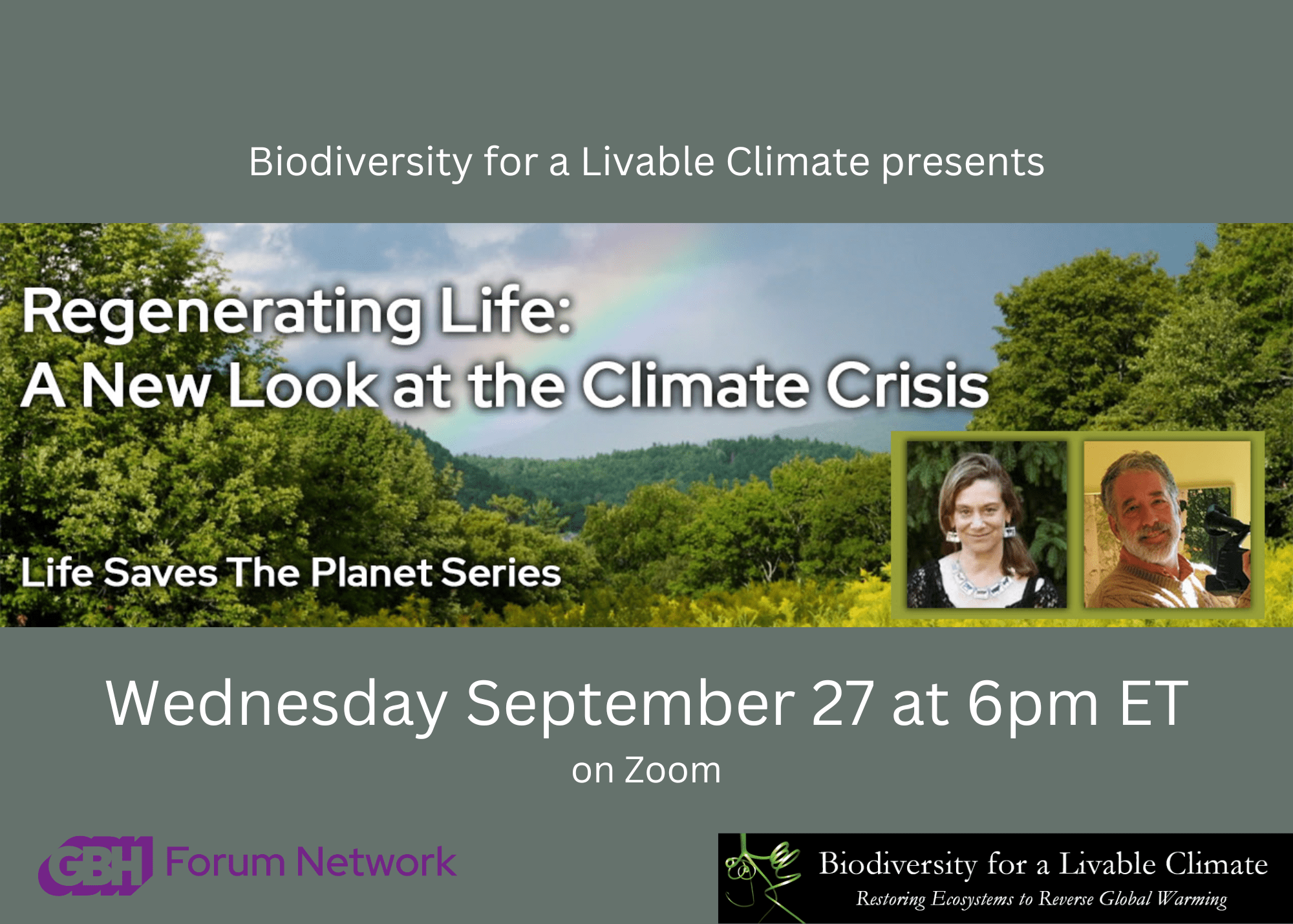
Regenerating Life: A New Look at the Climate Crisis – September 27 at 6 pm
On Wednesday, September 27 at 6pm ET, John Feldman will share his perspective on Regenerating Life – an ecosystems perspective on the climate crisis. He will be joined in conversation by environmental journalist and author Judith D. Schwartz to explore regenerative solutions to climate disruption, global warming, and food insecurity. Read more and register now to…
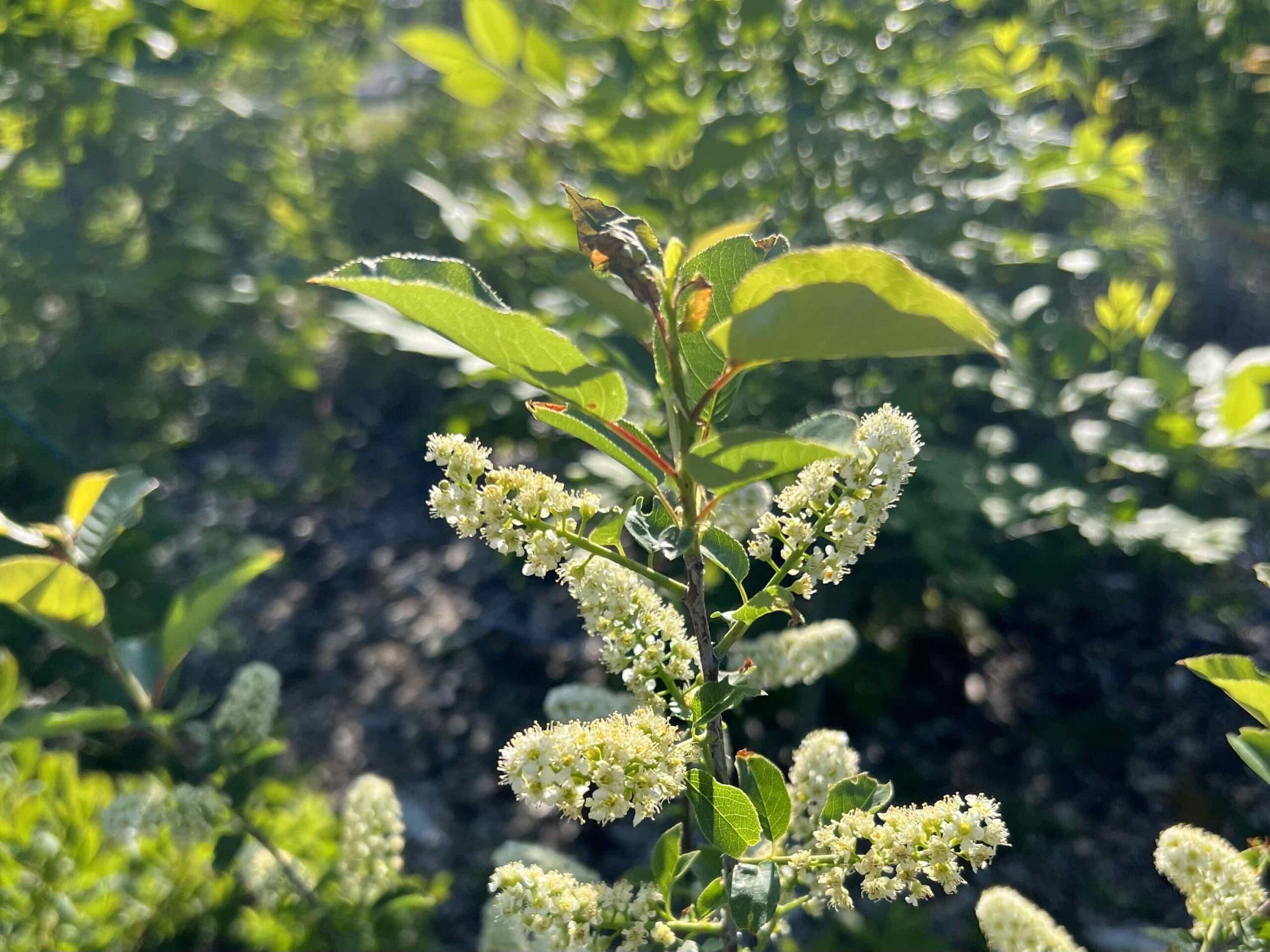
What are these tiny forests’ big benefits anyway?
What a thrilling week it has been! Since last Thursday’s New York Times article Tiny Forests with Big Benefits, my teammates and I at Bio4Climate have been buzzing with excitement at the recognition our forests and this type of restoration is getting. We are so thrilled by the enthusiasm of people’s responses, from interest in…
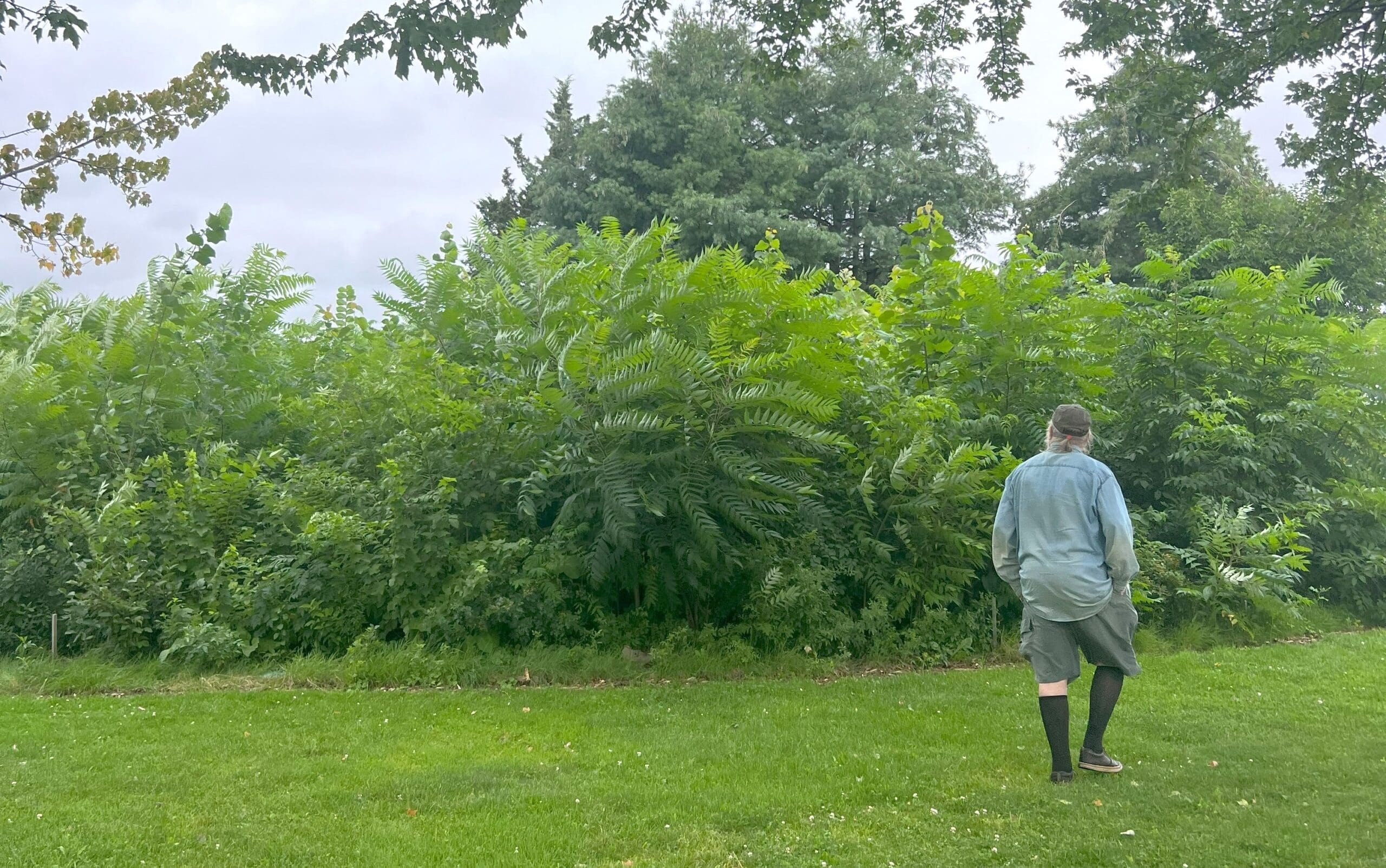
Our First Miyawaki Forest Turns Two
Our community grows alongside our first Miyawaki forest! In September of 2021, we planted our first Miyawaki forest – the first in the Northeastern U.S. – in Cambridge, Massachusetts. As the forest turns two, and demonstrates signs of resilient, abundant growth, the Bio4Climate team gathered with local forest enthusiasts to reflect and celebrate the ecosystem…

Bring Nature to the Global Fight to End Fossil Fuels – September 10 – 24
From now until September 24, we each have a critical opportunity to spread the message that #NatureCools in cities throughout the world, on social media, and in the mainstream media. Join us in showing people that restoring and protecting nature cools the climate, hydrates the land to prevent wildfires, drought and flooding, and reduces extreme weather.…
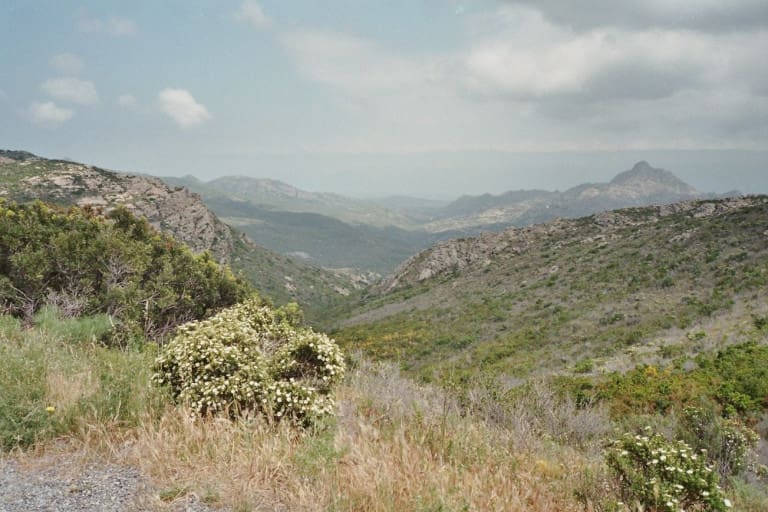
Millan Millan and the Mystery of the Missing Mediterranean Storms
I’d like to introduce this piece with a scenario. Suppose someone pointed out that you’d been looking at the climate through a pair of glasses with only one lens? Lifting them off your nose, they then provide you a new pair of glasses with two lenses. Suddenly, parts of the climate you couldn’t see before…

An Inspiring Grassroots Approach to Ecorestoration: Sahel Ecovillage Communities
On Thursday July 27 at 1 pm ET, we welcomed Dr. Ousmane Pame, Katrina Jeffries, and Dr. Marie Nazon to our Life Saves the Planet lecture series to discuss the Ecovillage movement and their work with REDES, a Network for Ecovillage Emergence and Development in the Sahel region of Africa. They shared their experience and…
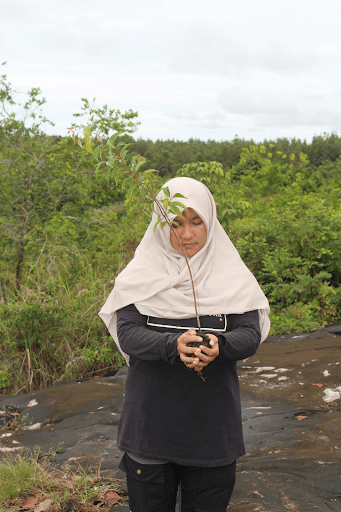
Primates and Peatlands: Restoring Indonesian Ecosystems in the Face of Flooding
Meet Eka Cahyaningrum, restorer of peatlands and advocate for primates. Her work in Indonesia restores wild animal populations and their habitats while uplifting local communities. Her youth-led efforts demonstrate the power of coming together under one goal: to create better living conditions for all living beings, so that we can all thrive. Eka Cahyaningrum, Primate…
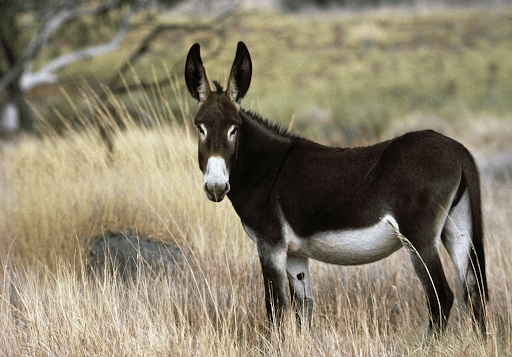
Kachana Station: A Home for Donkey-Led Restoration
In northwestern Australia, far from roads or major cities, a herd of wild donkeys carries a valuable promise. This remote region is the Kimberley, home to Kachana Station, a family-owned holistically managed landscape. The Henggelers have overseen Kachana Station for decades, and their management techniques have brought benefits for the soil, wildlife, and local climate. …
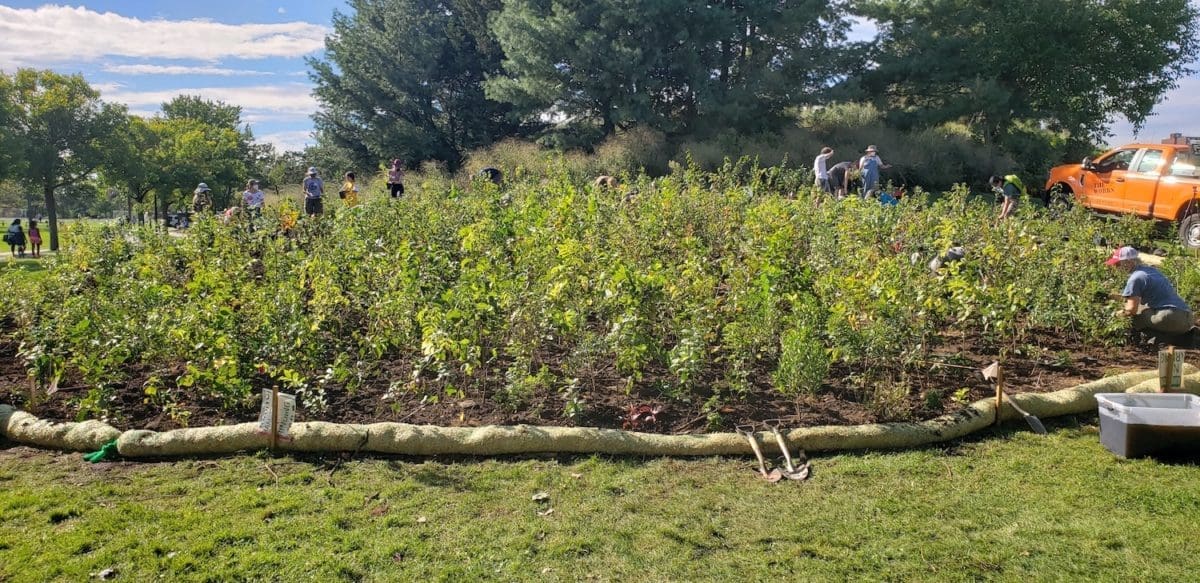
Miyawaki Forests and the Meaning of Regeneration
As many people know through firsthand experience, we planted the Northeast’s first Miyawaki Forest last weekend. After several months of planning, discussion, and organization, we gathered in Danehy Park in North Cambridge to create the forest. This was the part I participated in, but like so much of our work at Biodiversity for a Livable…
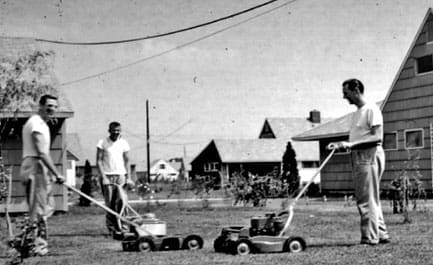
Urban Soil Restoration to Help Communities Manage Stormwater
Jan Lambert’s take: This article by Charles Hegberg, talks about the importance of soil restoration in urban settings for optimal stormwater infiltration. He writes: “We have hundreds of years of experience in making ‘Dirt’ – It’s time we start re-making ‘Soils’ on a landscape level, quickly.“ “It’s no secret: Americans take their lawns seriously –…
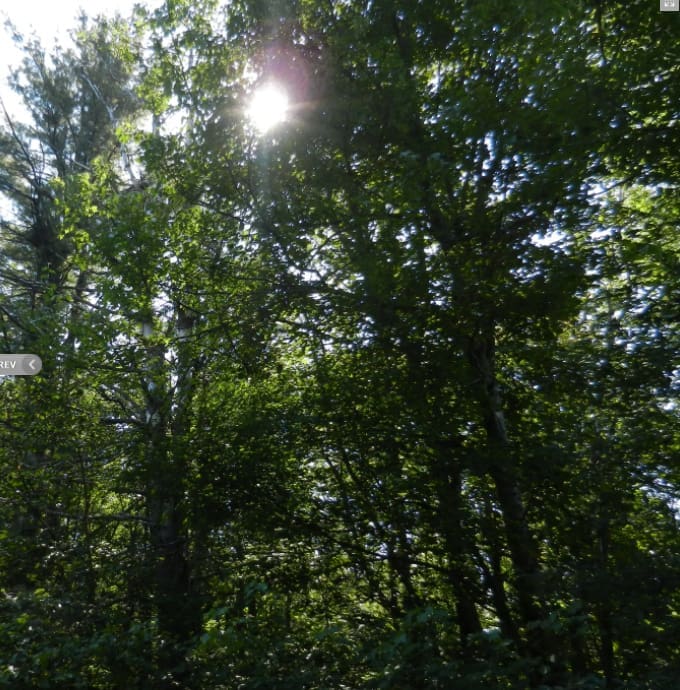
Evapotranspiration – A Driving Force in Landscape Sustainability
Jan Lambert’s Quick-Take: This is must reading if you really want to understand the dynamics of climate. No, this is not another piece on fossil fuel emissions! Jan Pokorny and his colleagues are leaders in presenting to all of us the vital interactions of water vapor, plants, and solar energy in creating and maintaining a…
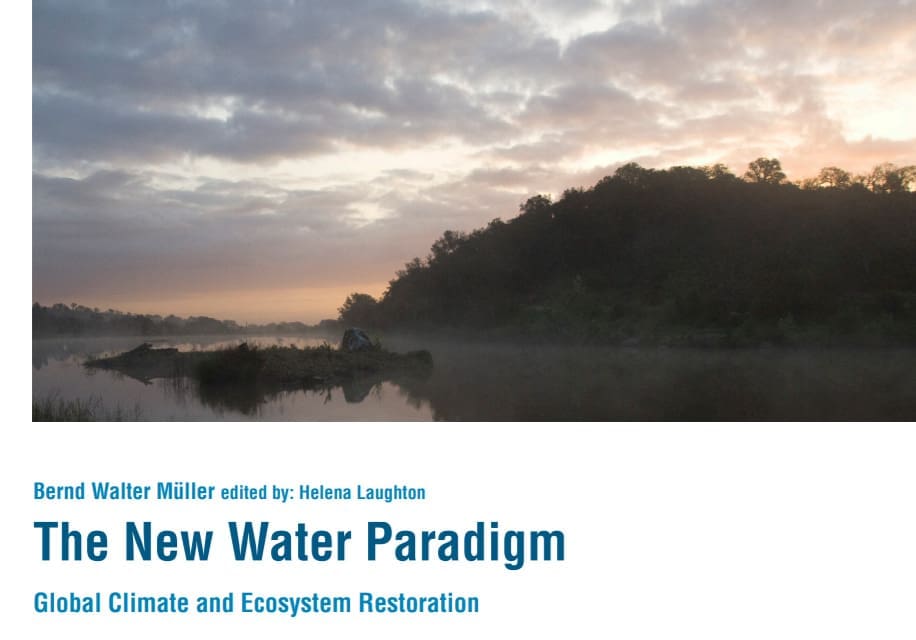
The New Water Paradigm: Global Climate and Ecosystem Restoration
Bernd Walter Müller edited by: Helena Laughton Jan Lambert’s Quick Take: Very understandable reading about the importance of the New Water Paradigm. Abstract: Most global water-related crises, such as water scarcity, drought, desertification, flooding, rising sea levels and climate change, are symptoms of long-term mismanagement of rainwater and vegetation. This results in global disruptions to…
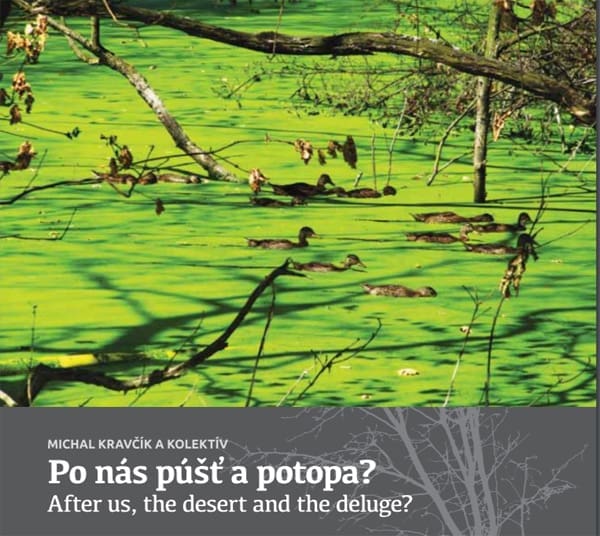
After Us, the Desert and the Deluge?
Jan’s Quick Take: This is a large and lavishly illustrated volume detailing the Slovakian “Landscape Revitalisation and Integrated River Basin Management Programme.” The book is presented in Slovakian and English languages (in side-by-side panels). This work is a unique reflection and photo-documentary, of sorts, of the insights and results from the Slovakian Program, while simultaneously…
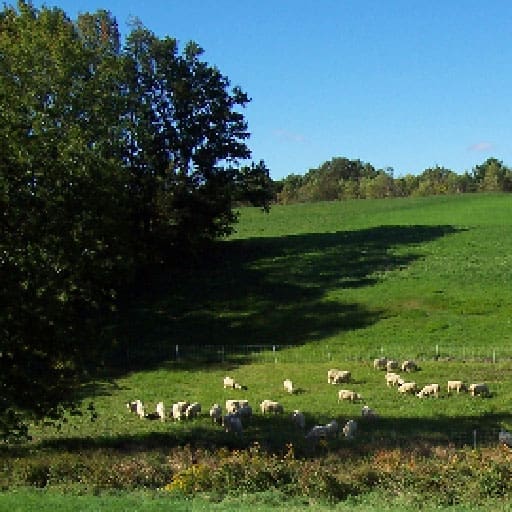
Without vast tracts of grasslands, what can we do in New England?
To pull carbon out of the atmosphere and sequester it in soils, we need to restore biodiversity: that’s the foundation of the whole show. One of the most important visible elements from the perspective of ecosystems is to cover bare ground. Bare ground doesn’t absorb water, it breaks the water cycle, it interferes with the…
